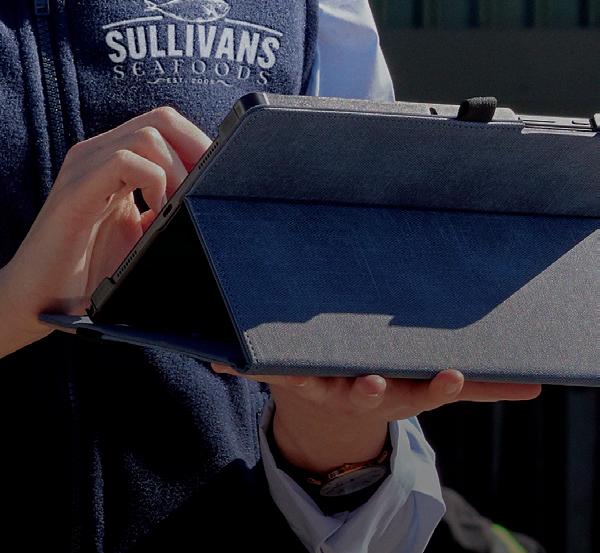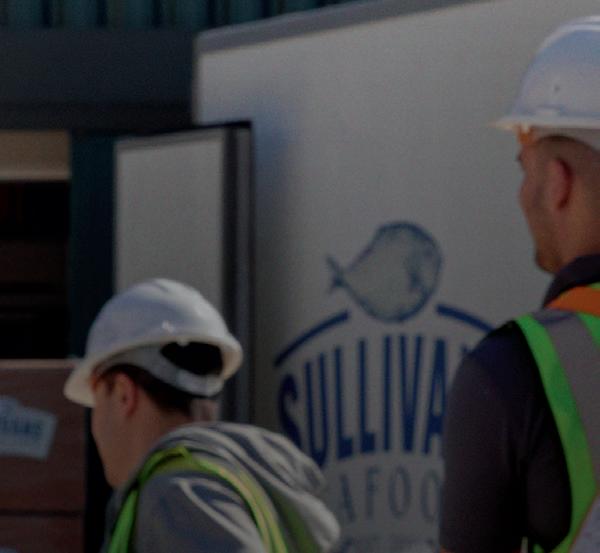


































































































































On the cover: John O’Beirne, Director, Business Banking, Bank of Ireland
Photography: Brendan Du y
Editor: Denise Maguire
Creative Director: Jane Matthews
Designer: Alan McArthur











Production Executive: Nicole Ennis

Managing Director: Gerry Tynan







Chairman: Diarmaid Lennon

Email: info@ashville.com or write to: Better Business, Ashville Media, Unit 55, Park West Road, Park West Industrial Estate, Dublin 12, D12 X9F9. Tel: (01) 432 2200

All rights reserved. Every care has been taken to ensure that the information contained in this magazine is accurate. The publishers cannot, however, accept responsibility for errors or omissions. Reproduction by any means in whole or in part without the permission of the publisher is prohibited. © Ashville Media Group 2023. All discounts, promotions and competitions contained in this magazine are run independently of Better Business. The promoter/advertiser is responsible for honouring the prize. ISSN 2009-9118
SFA is a trading name of Ibec.




In this edition, we showcase the winners of the National Small Business Awards. Mo ett Automated Storage was named Overall Winner of the Small Firms Association National Small Business Awards 2023, alongside 10 category winners. Five emerging new businesses were also recognised.
e HR pages go through a list of common mistakes employers make in implementing disciplinary procedures and we speak with Catherine McGovern, Tax Partner at PKF O’Connor, Leddy & Holmes Limited along with Emma Richmond, Partner at Whitney Moore about the tax and HR implications of hiring someone to work remotely from outside of Ireland.
Our policy sector looks at the SFA’s submission to the Workplace Relations Commission (WRC) consultation on a Code of Practice on the Right to Request Remote Working. Our sector spotlight looks at entrepreneurs running marketing organisations and we meet award winning female business owners from across the economy.





is magazine contains stories that inform, inspire and entertain. It showcases and celebrates the achievements of small companies, provides advice to help you in your business and keeps you up to date on the latest trends at home and abroad.
Ireland is a nation of small businesses. Of over 267,000 businesses in the country, 99% have less than 50 employees (small) and 92% have less than 10 (micro). ese companies can be seen in every city, town and village in the country and together they provide employment to half of the private sector workforce.
e SFA proudly represents a diverse membership of businesses with less than 50 employees: homegrown and spanning every sector of our economy. Our members can be found in every town and every city in Ireland. We want to make Ireland the most vibrant small business community in the world – an environment that supports entrepreneurship, values small business and rewards risk takers.
Better Business is the magazine of the small business community. We welcome your feedback, suggestions and ideas to info@sfa.ie or on Twitter @SFA_Irl.
 David Broderick Director, Small Firms Association
David Broderick Director, Small Firms Association


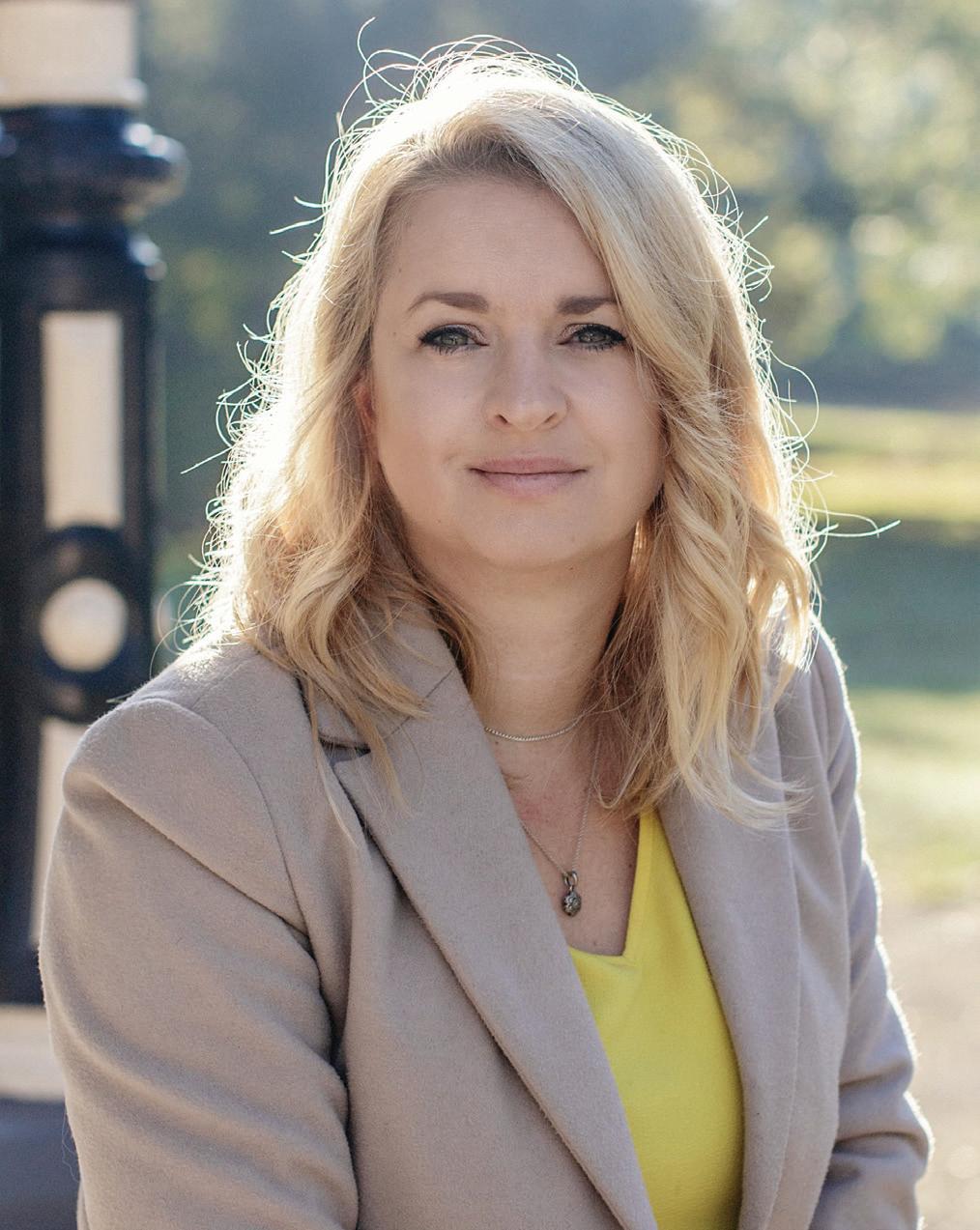

From 11th June, PPS numbers must be provided for company directors when submitting forms to the Companies Registration Office (CRO) relating to the incorporation of new companies, the filing of annual returns and notifying changes of company directors or secretaries, under the Companies (Corporate Enforcement Authority) Act 2021. This requirement will enable the CRO to verify the identity of directors and thereby enhance the accuracy of the register of companies. The provision of a PPS number will help to avoid duplication in situations where there may be variations of a director’s name and address. It will
enhance CRO efforts to guard against abuse of the register by providing assurance that the information provided relates to a real person. Directors who do not have a PPS number can apply to the CRO for an identified person number (IPN) and use this number as an alternative to the PPS number.
Visit www.cro.ie for more information.
N.A.A has taken aim at its recycling, building and vehicle consumption. The goal is to cut down on its fuel consumption and emissions and lower its carbon footprint for a more sustainable atmosphere. To do this, the company has already switched 10% of its fleet to fully electric and just recently invested in the next phase of its sustainability plan with the commissioning of 25kWp Glass on Glass solar panels to power its Dublin 12 premises. This system will produce an energy surplus and have grid access from ESB Networks under the mini-generation scheme. Any surplus created will be exported to the grid under this scheme for a minimum of 15 years.

Sage’s annual survey of almost 12,000 business leaders globally - ‘Small Business, Big Opportunity’ - finds that despite a challenging 2022, Irish small businesses have increased their productivity and managed high costs well, in comparison to other European countries. The findings reveal that Irish SMBs feel stronger about the importance of increasing productivity to overcome the barriers faced in the past year than their European counterparts. Findings also reveal that Irish SMBs are generally satisfied with their understanding of their company’s data, particularly surrounding the business’s productivity, further implicating productivity as a major area of focus for Irish SMBs. Perhaps relatedly, Irish SMBs have a keen interest in AI technology compared to SMBs globally. However, the cost-of-living crisis is still hitting the region hard, with 69% of Irish businesses reporting that increasing costs are contributing to a lack of confidence in their business’ success.

Siobhan Byrne, travel advisor to US celebrities and politicians and Founder of travel design company Adams & Butler, recently won a Travel + Leisure A-List Advisor 2023 award as well as a Conde Nast Travel Specialist 2023 award in New York. SFA member Siobhan is the only Irish person ever to win both awards. The awards are considered the pinnacle of success as a travel advisor. Siobhan is a board member of Virtuoso EMEA, a luxury travel consortia headquartered in Texas, whose members have an annual turnover of over $30 billion. She also sits on the Irish US Council. Siobhan is committed to ensuring that Adams & Butler is a global leader in sustainable and responsible travel and that it supports local economies and communities when designing clients’ travel. She wants clients, when on holiday, to capture a lifetime of memorable moments. Adams & Butler offers clients unique and authentic tailormade travel and cultural experiences worldwide.

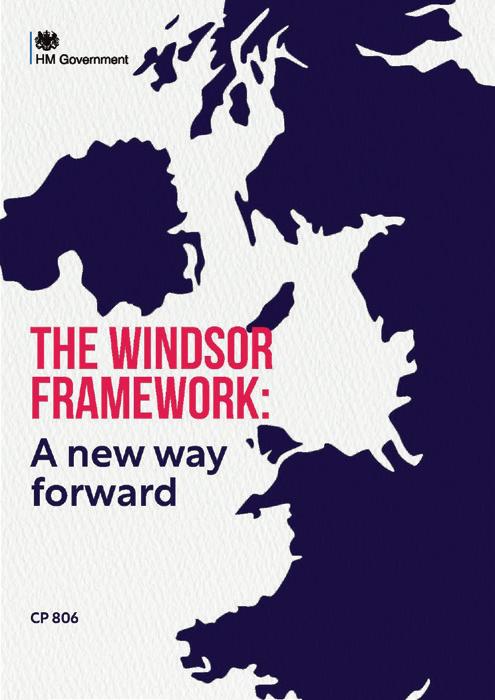
The United Kingdom and European Union have formally adopted the Windsor Framework, which came into effect on 25 March 2023. The new arrangements envisage a simplification of customs procedures, facilitations for parcel post and an expansion of the existing trusted trader scheme. The changes will be introduced on a phased basis which will give traders and authorities time to prepare. The indicative timetable for implementation is:
30 September 2023 – start expanded scheme for trusted traders
30 September 2024 – start all facilitations for freight and parcels
The simplifications envisaged in the Windsor Framework apply to traders based in Northern Ireland and goods imported to Northern Ireland. Goods that are destined for Ireland, which are shipped through Northern Ireland, continue to be subject to full customs and import requirements. This means that Irish traders can continue to complete their customs formalities in Northern Ireland or move their goods under the customs transit procedure for completion of the formalities on arrival at an authorised premises in Ireland. As we approach the timeline, SFA along with our colleagues in Ibec, will work together to provide resources and assistance to members as the information becomes available.
@mrgaryfox
- Stop playing the startup game in hard mode. Get a mentor. Irish entrepreneurs can get a free mentor thanks to MentorsWork brought to you by @SFA_Irl & @SkillnetIreland
@IbecGlobal - An important OpEd in today’s Irish Independent by @SFA_Irl Director David Broderick, highlighting the risk to small businesses from an increasingly muddy regulatory environment
@WMBMagazine
- EVENT: BOOSTING YOUR SALES WITH AI#MentorsWork, the nationwide business #mentoring & support programme for #SMEs, will host their latest webinar, free to attend for SMEs, on the topic; ‘Boosting your Sales with #AI’. @SkillnetIreland @SFA_Irl
@SFA_Irl Jun 20
Calling all SFA
Members to attend an in-person meeting with the Irish Central Bank at SFA HQ tomorrow. Voice your concerns in front of the Irish Central Bank. Register now on http://sfa.ie/ events
@SFA_IRL


New figures from FraudSMART, the fraud awareness initiative led by Banking & Payments Federation Ireland (BPFI), show that businesses were conned out of €8 million due to invoice fraud and CEO impersonation fraud during 2022. The figures come as FraudSMART has issued a warning to SMEs to be on the alert for financial scams, especially now that hybrid and work from home practices have become well established following the Covid-19 pandemic.
With small and medium sized businesses being particularly vulnerable to these types of scams, a recent survey with Small Firm’s Association (SFA) members shows almost 50% of businesses reported that they had been targeted by fraudsters in the last 12 months. In light of this increased fraud risk, FraudSMART and SFA have joined forces to launch a new fraud prevention guide for businesses outlining the common types of financial fraud affecting Irish businesses and providing advice on how to avoid them.

Clonmel’s Smart Skills Agri-Tech project scooped the Overall .IE Digital Town Award and €10,000 prize fund at the .IE Digital Town Awards 2023. The overall winner helps farmers use new technologies to make their work easier, save time and money as well as improving the sustainability and profitability of their farm. The programme also delivers practical digital training in areas such as soil fertility technology, grassland management technology, time and labour-saving technology, farm management systems and handy Apps. The awards were created by .IE in 2021, as part of a broader four-year €1 million investment in the .IE Digital Town Programme, which encourages the uptake and use of internet and digital technologies for businesses, citizens and communities.

“Embedding competitiveness is critical to building resilience in small businesses across the economy.”
“50% of businesses reported that they had been targeted by fraudsters in the last 12 months.”

“Always remember that cash is the lifeblood so know your numbers and keep on top of your monthly accounts.”
CLIMATE TOOLKIT 4 BUSINESS:
The Toolkit provides a clear and accessible starting point for any business, signposting them to useful climate action resources.
GREEN FOR MICRO:
The aim of the Green for Micro programme is to help you examine and identify cost savings and market opportunities within your business. This is achieved by looking at your business from an environmental perspective. Improving environmental performance through greater resource efficiency can help your business achieve competitive advantage. Contact your local LEO. Visit gov.ie
ENERGY EFFICIENT GRANT FOR SMALL BUSINESS:
The grant will cover up to 50% of the costs to a maximum amount of €5,000. The scheme will reduce the impact of small businesses on the environment and may help them reduce costs over time to enable them to become more competitive. Contact your local LEO.
GREEN START:
The aim of the Green Start assignment is to improve environmental performance through greater resource efficiency, helping companies achieve competitive advantage and greater market share through enhanced credentials and cost savings. Contact Enterprise Ireland. Sign up for our free online learning resources, business and support grants, sector specific resources and electric vehicle grants. Contact Sustainability Energy Authority of Ireland.
MENTORSWORK:
Becoming environmentally sustainable is crucial to the future competitiveness of your business. Whether you are starting your green journey or are well advanced, the MentorsWork part-subsidised consultancy services will support you to streamline processes, reduce waste and optimise operations to achieve greater efficiency and productivity unique to your business. This can lead to cost savings, improved performance and a stronger brand image. Contact: info@mentorswork.ie to discuss.


Total Power Solutions, an Elite partner of Schneider Electric, based in Maynooth, Co Kildare was named the winner in the Datacentre Consolidation/ Upgrade Project of the Year category at the Datacentre Solutions Awards ceremony in London. The award was for a project that delivered a new, high efficiency cooling system and EcoStruxure Row Data Centre solution as part of a new data centre consolidation and modernisation project at University College Dublin. Total Power Solutions worked with UCD and Schneider Electric to deliver the project with no downtime. It’s a project that will provide UCD with greater resilience of its critical IT systems and will meet the demands of the university for many years to come.
IF YOUR BUSINESS HAS SOME NEWS TO SHARE THAT YOU WOULD LIKE FEATURED IN THE NEXT EDITION OF BETTER BUSINESS, CONTACT ELIZABETH BOWEN ON (01) 605 1626 OR ELIZABETH. BOWEN@SFA.IE

Elizabeth Bowen, SFA Public Affairs Lead
Geraldine Magnier, SFA Chair
Philip Maguire, CEO and Founder, Auxilion
Irish-based intellectual property services law firm FRKelly has seen significant internal growth courtesy of three additions to its partnership in the past month – Con O’Connor, John O’Flaherty and Judy McCullagh. O’Connor is a European patent attorney specialising in the chemical, materials and pharmaceutical fields. O’Flaherty is a European patent attorney with expertise in electronics, telecommunications and software/computer-implemented inventions. Judy has worked for over 20 years in the IP arena, with the majority of those years spent in the trademark field. Gavan Ferguson, Managing Partner, said: “Their appointment as partners is central to the continued growth of FRKelly and consolidates our position as a leading firm of European IP attorneys.”

NPP, the Dublin based packaging and machinery company, has announced its new brand identity. The new branding showcases the company’s evolution and growth to a complete packaging partner, offering high performance machinery and systems, materials and engineering services. The rebrand marks an exciting new chapter for NPP, with the unveiling of a fresh and modern look that truly represents the company’s progression and ambitions for its continued growth in 2023 and beyond. The brand expression ‘We complete the package’, is the cornerstone of NPP’s new identity and celebrates the company’s commitment to innovation, transformation and partnership.
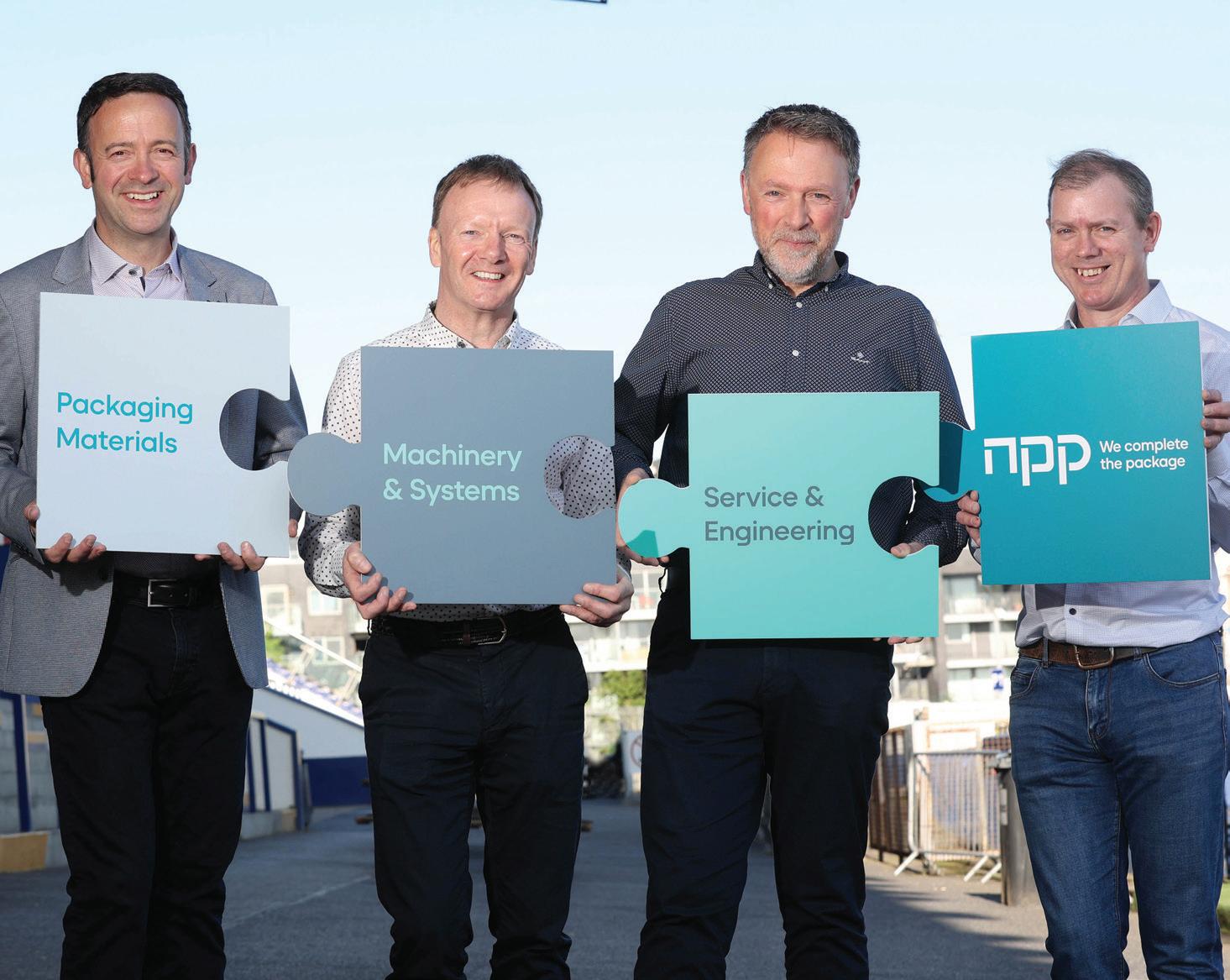
SFA member KORE Insulation was announced a winner at the 2023 Irish Construction Excellence Awards in the Construction Product InnovationBuilding Fabric category for the KORE Insulated Foundation System. This achievement underlines the Cavan-based business’ commitment to product innovation and its passion for embracing the future of the industry as it moves towards modern methods of construction.


• Develop new skills in your team
• Green your business for cost savings, competitiveness and profitability










































• Access highly subsidised flexible training boost skills – boost business


Contact your local Education and Training Board or visit skillstoadvance.ie






























GETTING TO GRIPS WITH BUSINESS PROCESSES AND UNDERSTANDING HOW THEY CAN TRANSFORM YOUR SMALL BUSINESS ISN’T AS COMPLICATED AS YOU MIGHT THINK, WRITES DEANNA O’CONNOR






















it sounds mystifying to the uninitiated and perhaps a little bit overwhelming to the small business owner, who is so busy trying to get everything done that they can’t step o the treadmill for a minute to begin documenting it all. But once the process is de ned, it can be handed over – to a manager, a new hire, a contractor, or a piece of so ware that can specialise in the job at hand and get it done quicker and better.

at’s the big leap that the small business owner has to take in order to grow. ere’s a saying in French – ‘reculer pour mieux sauter’ – it means to draw back in order to make a better jump.
starting point is always the why: “Are they very clear what their business is all about? Why are they in business?”


According to Steve Halpin,



 Founder
Founder
of Lean Teams and Chairman of the Dublin Lean Network, “You have to get people to think about what they’re doing and the way they’re acting as a process. Until they actually de ne that, they can’t really train somebody else to do it.”
Business processes – be they operational, management, support or customer-facing processes – are in essence a set of tasks, describing the systematic way in which work is carried out in order to achieve the functions and goals of the company. ey are typically documented in the form of standard operating procedures (SOPs) or process maps, which outline the steps, inputs, outputs, roles and responsibilities associated with each process. Business Process Management (BPM) involves any combination of methods used to analyse, measure, improve, optimise and automate a company’s business processes.
For a very small business, especially perhaps an owner/manager, founder-led or family business looking at succession planning or hiring in to grow the business, getting all that knowledge out of one person’s head and down on paper into a handbook format can be the rst essential step.
Discussing his approach Halpin says, “Really what it’s all about is teaching SME businesses a di erent approach, looking at their businesses in a completely di erent way.” Halpin says while every conversation with a small business can go a di erent way, the
Next, he would look at the size of the business to determine what to focus on. “Is the business owner doing everything or are they just beginning to scale and build the team? ose are two di erent challenges. If the business owner is doing everything they need to learn about the tools and the skills that’s one thing but if they’re trying to scale the business, which is really where process improvement comes, the question is, are the business processes de ned?”
A great route for small business owners to get help and advice on the process improvement journey is through their Local Enterprise O ce (LEO); its Lean for Micro programme for very small businesses has had outstanding results for participants. It costs just €250 for a business and with a couple of thousand Lean projects under their belt, they have averaged a cost saving of €35,000 per company.
It’s useful to bear in mind that BPM is all about the overarching framework and the method, while you should look to Lean principles for the technique and tactics to achieve process e ciencies.
Rohit akral, CEO of Target Integration, is an expert in automation of business processes and empowering businesses through digital transformation. He says, “If you are an SME, you sometimes don’t have a process or you do things as you see t. A business process so ware can make sure you have standard processes from the so ware which you can use to manage your business and not overcomplicate things for yourself.”
Enhanced e ciency from streamlining work processes is one of the main bene ts of putting some time into business process improvement. Taking the next step to using so ware to automate repetitive tasks frees up employees’ time for more ful lling higher value work and reduces manual errors. For the business owner, it opens up a whole new world of data-driven decision making and small businesses can leverage this information to make informed decisions and identify trends as well as areas for improvement.
“A number of bene ts are there and the biggest one is improved visibility for the business owner,” says akral. “Business owners generally complain about not having visibility of the business’ performance and not having time to dig through the information
stored in Excel spreadsheets or Word documents etc. A system can make sure you have structured data available to make decisions on your business.”
akral’s advice for business owners thinking of looking into investing in so ware to automate business processes is to start small and grow from there. “If you are a paper-based organisation and would like to get to full automation and a paperless company, that will require time as well as commitment from all team members. It will require a lot of retraining and a lot of patience as well. Bring your team together, get them involved from the beginning and help them understand every part of the system.”

He also advises to go for a standard system that doesn’t require too much customisation. “Invest in training and change management and less on customisation of so ware. You don’t want to create a custom system which you have to maintain in the future and cannot upgrade easily.”
It may not be an easy decision to make, waiting for ‘the right time’ to do it, but according to akral, most of his customers’ only regret is not automating business processes sooner.
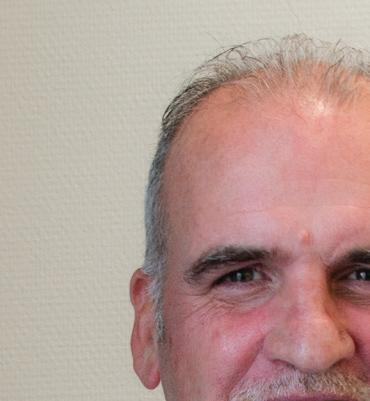
“It is going to be a scary change for the business and the bigger the business, the more di cult it is to change,” he says. “We have businesses who sat on the decision to change for years and once they made the decision, they became one of the biggest fans of their new process and the system. e actual return on investment calculation takes time, but you can very quickly see productivity and the advantages of using the new process in a system of your choice.”


Moffett Automated Storage, based in Clontibret, Co Monaghan, was founded in 2017 by Sam Moffett and employs 28 people. The company covers all aspects from warehouse design and planning, engineering and production of machinery, installation of equipment and software development, together with aftersales support and maintenance. Moffett boasts worldwide customers and its products are suitable for any company that stores pallets on a medium to large scale. Moffett machines work 24 hours, 365 days a year in any environmental conditions between 30c to +40c. Its backup support team offers a 24 hour service to resolve any issues. The company offers a unique service in Ireland and has very few competitors worldwide. Moffett invests 50% software development into research and development, leading to further growth in this recession-proof business.
The SFA National Small Business Awards celebrate the achievements of small businesses in Ireland and recognise the important and vital contributions of this sector to the Irish economy. Forty-three finalists and five Emerging New Businesses were selected from hundreds of applications received for the 2023 programme.
Announcing the winner, Geraldine Magnier, SFA Chair said: “Moffett Automated Storage is a model company for indigenous businesses in Ireland. It is a strong profitable company that strives to be the best in its industry, with a focus on continuous improvements. Various Moffett companies have contributed greatly to employment and success in Co Monaghan and this newest venture shows that Moffett companies will continue to do so into the future.”
SFA Director David Broderick added: “We continue to grow the SFA Business Awards programme that positions the small business brand as the backbone of the Irish economy. Congratulations to all finalists, each of whom represent the very best in small business – all are winners. Small businesses are present in every village, town and city and contribute enormously to economic activity and community engagement.”
The Awards prize package for ALL finalists included strategic management training, participation in the SFA Business Connect event last February and a half page media exposure in a special supplement published with the Irish Independent. The total prize for finalists is valued at €50,000 each.

The Emerging New Business award sponsored by .IE encourages emerging entrepreneurs to promote and grow their business. Entrants in this category are under two years in business and the winners were identified by the judging panel as companies that will grow into successful organisations.


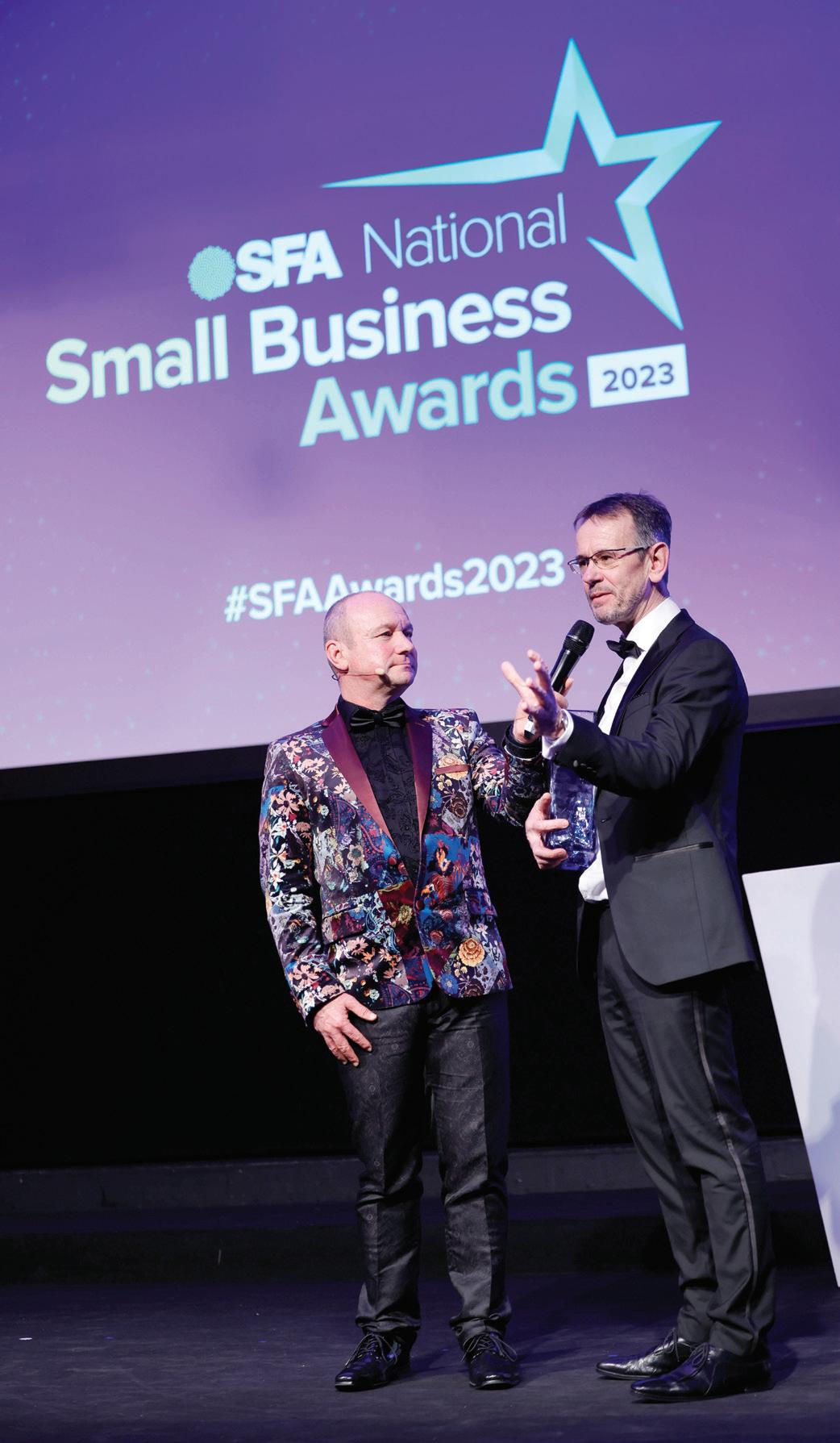

> Climeaction, Cobh, Co Cork
> Ecco Spray, Galway

> JUSTTIP, Dublin
> ReaDI-Watch, Malahide, Co Dublin
> The Smooth Company, Nova UCD

“WE CONTINUE TO GROW THE SFA BUSINESS AWARDS PROGRAMME THAT POSITIONS THE SMALL BUSINESS BRAND AS THE BACKBONE OF THE IRISH ECONOMY. CONGRATULATIONS TO ALL FINALISTS, EACH OF WHOM REPRESENT THE VERY BEST IN SMALL BUSINESS.”






The Category winners were presented with a trophy and free membership of the Small Firms Association for one year. The overall winner also received a bursary of €5,000 for the charity of their choice, kindly donated by Aalto Bio Reagents, overall winner in 2022. Awards partners are Irish Independent and Skillnet Ireland.
> Manufacturing (sponsored by Permanent TSB) Moffett Automated Storage, Co Monaghan
> Food and Drink (sponsored by Bord Bia) Dairyglen Products, Bray, Co Wicklow
> Services (sponsored by Sage)
Jones International Transport, Co Dublin
> Outstanding Small Business (sponsored by CISCO)

The Agile Executive, Dublin 18
Highly Commended Dingle Sea Safari, Dingle, Co Kerry
> Retail sponsored by One4all Rewards Nolan Butchers of Kilcullen, Co Kildare

> Innovator of the Year (sponsored by NSAI)

Moffett Automated Storage, Co Monaghan
Highly Commended ZEUS Scooters, Co Carlow
> Exporter of the Year (sponsored by Enterprise Ireland) Bevcraft Group, Co Westmeath
> Sustainability (sponsored by SBCI) The FACTORY, Birr, Co Offaly
> Workplace Wellbeing (sponsored by DeCare) Beat 102-103, Waterford
A GOOD MARKETING AGENCY WILL BUILD YOUR BRAND, CREATE THE RIGHT CONTENT AND LET YOUR PRODUCT OR SERVICE SHINE. MEET THREE IRISH MARKETING COMPANIES HELPING SMALL BUSINESSES ACHIEVE THEIR GOALS.














The latest research shows that after market growth of 3.7% in 2022, total advertising spend in Ireland is on track to increase to €1.43 billion this year. The research, which was carried out by marketing communications agency Core, also estimates growth in advertising across most media, with the online advertising market forecast to grow a further 6.1% to €859.9 million. In 2023, digital media is expected to grow 4% to €32.7 million while advertising investment in social media will account for 41.6% of all online advertising, ahead of search (37%), display (16.9%) and classifieds (4.5%). While Google and Meta will dominate, the company said TikTok would continue to rise and to watch out for the potential launch of an Amazon.ie site.
It’s clear from the above stats that there’s no end of opportunities for Irish marketing firms.
Founded in Cork in 2008, Granite Digital has set its sights beyond Ireland and has plans to become a global digital agency leader. The company, which has three offices in Ireland and one in the UK, recently announced it has acquired a majority stake in the digital division of New York creative agency LCM247. The acquisition – which will see the formation of LCM by Granite – is expected to boost Granite’s revenues beyond €13 million this year. “We’ve had clients in the US for a number of years but up until now, they were managed from our Irish office. Now, we have a real opportunity to establish an office in the US and really grow and cement our presence over there,” says Conor Buckley, CEO of Granite Digital.
Setting up the agency in a period of economic instability didn’t inhibit growth, says Conor. “In some ways it worked in our favour, as it kept us small and lean and careful about keeping our costs

“WE’RE IMPROVING OUR AGILITY IN A DIGITAL LANDSCAPE THAT CHANGES BY THE NANOSECOND. WE WORK IN A SECTOR THAT’S EXTREMELY FAST-PACED AND THE SERVICES WE OFFER ALSO HAVE TO CHANGE IN LINE WITH MARKET DEMANDS.”Pictured at the announcement in New York are (L-R): Robert Carpenter, Chief Commercial Officer, Granite Digital; Conor Buckley, CEO, Granite Digital; Patrick Heaphy, Founder and President, LCM247
down. Even during the recession, we grew and I think that’s down to the fact that digital was experiencing significant growth during those years but also, we were putting the work in. We were actually growing much faster than the market itself, acquiring companies and winning business.” Staff numbers currently stand at 110, but Conor expects that figure to increase to 125 by the autumn. The acquisition isn’t just about global scaling; it’s about enriching Granite’s existing portfolio with global experts. “We’re improving our agility in a digital landscape that changes by the nanosecond. We work in a sector that’s extremely fast-paced and the services we offer also have to change in line with market demands. Clients want our brand activation services and they want more activity on TikTok, Facebook and Instagram. It’s only in recent years that TikTok has become popular with clients and I think that’s a fair reflection of how much the industry has changed. Ensuring you’re best placed to offer your clients the most up-to-date services can be a challenge.”
Keeping up with new trends is almost a full-time job in itself, agrees Muireann Fitzmaurice, Founder and Director of marketingcoach.ie. The most impactful changes have occurred in the last couple of years, she says. “AI is a game changer and we haven’t even seen the full extent of its capabilities yet. It’s a technology that can have a hugely positive effect for both companies and marketeers, but only if you work with it.” Muireann set up the business in 2012 after working in the FMCG sector for several years. “I wanted a job where I could make a real impact on businesses. With marketing, you get the chance to create meaningful relationships with clients who benefit from the work I do.” With marketingcoach.ie, Muireann offers group training and consultancy services. The aim is to help businesses choose the most impactful marketing tools to achieve their goals in the most cost-effective way. Business is good and although other industries may be cutting their marketing budget, the same can’t be said for B2B. “Business is flying, I’m lucky in that we’re really busy. I was talking to two businesses in the retail sector recently and

“I WANTED A JOB WHERE I COULD HAVE A REAL IMPACT ON BUSINESSES. WITH MARKETING, YOU GET THE CHANCE TO CREATE MEANINGFUL RELATIONSHIPS WITH CLIENTS WHO BENEFIT FROM THE WORK I DO.”Muireann Fitzmaurice, Founder and Director, marketingcoach.ie
there definitely seems to be a focus on reducing spend. In the B2B space, I’m not seeing that at all. Businesses are focused on growth and expansion.”
Based in Dublin 2, Agency X is also experiencing huge growth this year. The agency works with companies in the healthcare sector, offering services ranging from virtual and hybrid events, omnichannel strategy, digital & social and brand creative. “Since we set up in 2009, the industry has really transformed. Back then, Facebook and Google were only in their infancy. Everything has gone digital now and new technologies and trends mean we’re constantly learning so we’re in a position to meet our clients’ demands,” said Grainne Larkin, Agency X Co-Founder.
Ireland’s marketing sector is extremely competitive, with approximately 900 agencies operating across the country. “At Agency X, we have a team of 20 so we’re quite small. I think one of our biggest challenges is the bigger firms – we put in the hours to ensure our work is just as good, if not better, than what they offer.” Consolidation in recent years has resulted in less agencies, says Conor at Granite Digital. “It’s still competitive but compared to 10 years ago, there are definitely less agencies operating today.” With

larger firms extending their offering to include their own marketing divisions, it’s a tough environment to compete in. “It’s a competitive sector, but providing clients with a proper marketing strategy leads to word of mouth and in turn, more clients. I’m a big believer in networking and I often tell my clients that getting out and about and meeting people is crucial. Digital is a powerful tool but I believe it must be combined with human interaction, whether that’s through PR, networking or attending events. In the B2B space, building relationships is probably one of the most important things a business owner can do,” says Muireann.
Plugging the skills gap is an issue, says Grainne. “The type of people we’re looking for have the technical skills that are in high demand across so many industries. We’re fortunate that we have a high retention rate; I think we attract people that enjoy working in a smaller team.” Large multinational tech companies don’t make it easy for firms like Granite Digital. “While they may add to the overall digital space, they make it difficult for small and medium businesses to compete for talent,” says Conor.
Granite’s US acquisition is the latest in a series of strategic expansions by the company, following 13 successful acquisitions – four of which have been in the last two years – including Continuum, Willows, Armour and Connector. With a team on the ground in New York, the plan is to accelerate the agency’s expansion across the East coast over the next 24 months. For Muireann at marketingcoach.ie, the priority for the rest of 2023 and beyond is more, happier clients. “I just want to do good work that’s both satisfying and impactful. Getting the right fit between client and marketeer is so important; once you’ve got that right, you’re flying.” Despite a busy schedule planned for Q3 and Q4, Agency X is also gearing up for growth. “Business is very good at the moment, so much so that we’re at capacity. We’re still pushing for growth though and intend to scale the agency going forward. We see a lot of opportunity in both the Irish market and internationally. We have clients outside Ireland in regions including the US, the UK and Asia and we’re optimistic that we can scale and grow. We don’t feel inhibited by the fact that we’re a smaller agency in the market; we’re well able to punch above our weight and offer more to clients.”
“I’M A BIG BELIEVER IN NETWORKING AND I OFTEN TELL MY CLIENTS THAT GETTING OUT AND ABOUT AND MEETING PEOPLE IS CRUCIAL. DIGITAL IS A POWERFUL TOOL BUT I BELIEVE IT MUST BE COMBINED WITH HUMAN INTERACTION, WHETHER THAT’S THROUGH PR, NETWORKING OR ATTENDING EVENTS.”The Agency X team at the 2022 Digital Media Awards
OBTAINING A PATENT NEEDN’T BE A COMPLEX PROCESS AND COULD ATTRACT INVESTORS AND POTENTIAL PARTNERS, WRITES DEANNA O’CONNOR

Forsmall businesses in Ireland, recognising and protecting their intellectual property (IP) can offer numerous benefits. Patents provide legal protection for inventions or innovative ideas, granting exclusive rights to the creator for a limited period. By obtaining a patent, small businesses can safeguard their unique concepts from being copied or exploited by competitors, thereby fostering a competitive advantage. Patents can also attract investors and potential partners, as they demonstrate the business’ commitment to innovation and its ability to generate valuable IP assets. Furthermore, patents can generate additional revenue streams through licensing or selling the patented technology, contributing to the long-term growth and sustainability of the business
For some small businesses, the idea of applying for patents can be off-putting: reasons cited include the expense and the notion that your patent is only as valuable as your ability to legally enforce it. A small business may not have the resources to pursue copycats in court. “One or two small design tweaks can often get around patents for a product like ours,” says Ferdia Kenny of 100 Tree Furniture, on his decision not to go down the patent route. Instead, they decided to focus on building a loyal customer base and a strong brand.
It may not be for everyone, but a good place to start figuring that out is to call the Intellectual Property Office of Ireland (IPOI). “The first thing we would advise anyone with an idea or a brand that they wish to protect is to contact our Information Centre in the IPOI,” says Claire O’Reilly, Head of Information Services at the IPOI. “Our team can give all the advice that’s needed to help with making an application.”
Examples of what could be protected include your business name, which could be registered as a trademark; a method you use to make your product which could be protected by a patent; original works created such as website content, marketing literature, catalogues and even manuals which could potentially be protected by copyright; a design aspect of a product.
For many innovative companies,
especially research spinouts, protecting a world-first technology or formulation is absolutely crucial. One homegrown example, the subject of an excellent case study by the European Patent Office (EPO), available to view on its website, is Aerogen, whose nebuliser technology facilitates high performance aerosol drug therapy for respiratory patients.
The company, which started life as a small start-up in Galway in 1997, now employs 160 people with headquarters in Galway and offices in the US, UK and China. The products are sold both directly by Aerogen and also under licence by its partnered companies.
Because Aerogen’s drug delivery system technology is both unique and worldleading in terms of effectiveness, it has always been important for them to protect it; their patent portfolio currently consists of 14 patent families. The benefits of this are not only monetary, such as from licensing fees. Patent protection impresses the benefits of Aerogen’s unique technology on clients, investors and consumers.
O’Reilly concurs, stating, “Intellectual Property should always form part of an SME’s business strategy, whether you are thinking of starting up a business or already running one. Your Intellectual Property could be one of your most important assets.”
Something Aerogen has done since the beginning is retain legal advisors to assist them with IP issues. O’Reilly notes that while the Office cannot advise applicants as to whether they choose legal advisors or not, “Intellectual Property can be a complex area, for which the help of a professional may be advisable, unless the applicant has had specialised training in the field.”
Coming down the pipeline, although as yet not ratified in Ireland, the Unitary Patent – a single European patent with unitary effect – will allow for obtaining and renewing a European patent through a single procedure, rather than having to apply under every jurisdiction separately. It will also allow litigation for enforcement under a single legal system before the Unified Patent Court (UPC).
“The UP system constitutes a costeffective route to patent protection, which
is useful for start-ups and SMEs with limited resources seeking to export to European markets and obtain broader geographical patent protection,” says O’Reilly. “There are currently 17 Member States participating in the UP system. However, it’s important to point out that some Member States, including Ireland, have yet to ratify the Agreement. In Ireland’s case, a referendum must be held and passed before we can participate.”
A local division of the Unified Patent Court will be established in Ireland if the State ratifies by constitutional referendum the international agreement under which the Court is established. A local court hosted in Ireland would provide businesses with ease of access to litigate on Irish soil, faster timelines and reduced costs. Small and micro-entities will also benefit from a 40% reduction in court fees.

While we wait for that to happen, it’s not a good idea to leave those good ideas unprotected. This is the ideal time to spring into action while the Ideas Powered for Business SME Fund grant scheme is running until 8 December this year.
The SME Fund, which is available on a first come, first served basis, is a European Commission initiative implemented by the European Union Intellectual Property Office (EUIPO), designed to help EU small and medium-sized enterprises (SMEs) protect their intellectual property (IP) rights. “We would strongly recommend all SMEs take a look,” says O’Reilly. “The IPOI has a dedicated page on its website, outlining all the various supports available to SMEs to obtain intellectual property rights.”
Windows
1 2 3
Siobhan Byrne Owner, Adams & ButlerWhen Covid happened, we brainstormed what we could and should spend our time on. We built our brand by developing a new website and doing weekly newsletters and webinars. 57,000 travel advisors across the Americas tuned in and our business grew by 43% in 2022. This year we expect similar growth on last year. Be open to change, even if it seems daunting!
Sorcha Kenny Managing Director, K&K Windows LtdOffer customers fivestar customer service to ensure they have the best experience. A positive experience will help to grow referrals and people’s confidence in your business. Offer your staff a five-star work environment – they are a huge part in the success of any business. In a modern world of advancing tech, try to remember that people will always matter.
Legal
Emma Richmond Partner, Whitney Moore LLP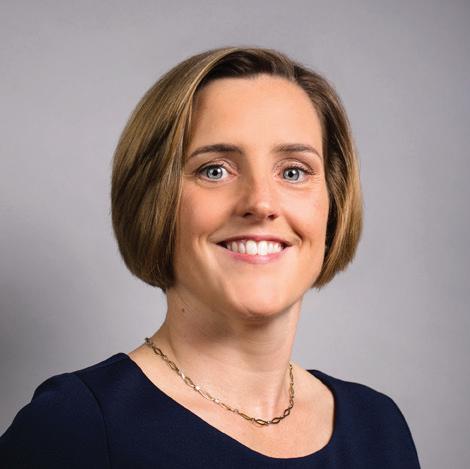
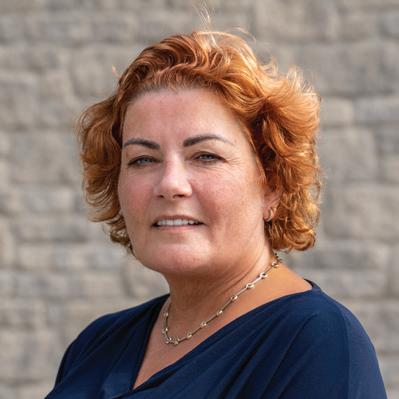
It is critical to choose a legal advisor that understands your business and the unique challenges you face. We would always recommend that you involve your legal advisor in your decisions as early as possible, so that any risks can be flagged and mitigated at an early stage, ultimately saving you time and money – prevention is better than cure!

4 5 6
Carmel Somers Carmel Somers Consulting Ltd

In a small business, risks are an inescapable reality. I’ve made decisions that haven’t always yielded the desired result, but recognise how crucial it is to assess potential outcomes, make informed decisions and just go for it! In embracing risks, I’ve challenged myself to adapt and it’s resulted in new opportunities and learning. I believe taking risks is a vital stepping stone to success.
Lisa Regan Galway’s Westend
Galway’s Westend has always been about The Business. Family-run businesses work alongside new shops, bars, cafes and restaurants, getting ready to hand over to the next. We have so many same type businesses, but they all offer something different. Never be afraid to open up next to a business you think might be competition - business attracts people and people bring the spend.

People are the key so listen to what they say and manage by walking about the office – it’s amazing what you find out. Your customer should be at the heart of your business and be an influence on your learning. Always remember that cash is the lifeblood of a business so know your numbers and keep on top of your monthly accounts.

“If you don’t feel you’re reaching something new, then don’t do it”
George Michael Singer-Songwriter, 1963-2016






RELATIONSHIPS COME FIRST AT BANK OF IRELAND BUSINESS BANKING. DIRECTOR JOHN O’BEIRNE EXPLAINS TO BETTER BUSINESS WHY GIVING CUSTOMERS THE CONFIDENCE TO INVEST IN THEIR FUTURE IS WHAT MATTERS MOST











“TO MEET THE NEEDS OF IRISH SMEs, WE AS A BUSINESS BANK NEED TO PROVIDE A BROAD RANGE OF SERVICES ALONG WITH A TEAM OF ENGAGED BANKERS AND STAFF WHO UNDERSTAND THE CHALLENGES AND OPPORTUNITIES THAT EXIST FOR IRISH BUSINESSES TODAY.”






















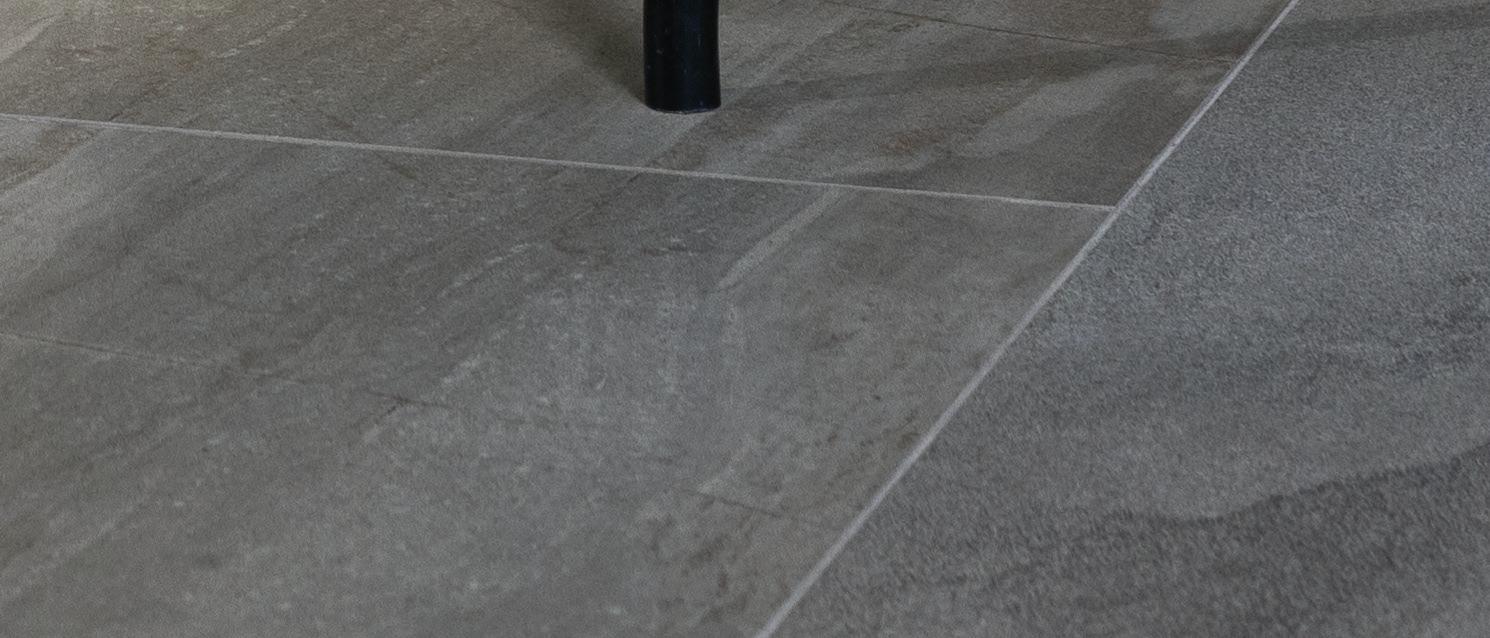











Bank of Ireland is celebrating its 240th birthday. roughout those years, the bank has grown to become an organisation that looks a er more than four million customers in Ireland and abroad, employs over 10,000 people and has more than €40 billion in lending to the Irish economy. Events to mark the anniversary are ongoing and include guided tours of the former House of Lords building at College Green, Dublin. Plans are also in place for the bank to present a statue of Daniel O’Connell, created by Andrew O’Connor in 1932, to the Houses of the Oireachtas for public display. “We’re also proposing a revamp of our College Green building which the bank has owned since its foundation in 1783. We’ve been operating in Ireland for so many years, through thick and thin and we certainly hope to be here for the next 240 years,” says John
O’Beirne, Director of Business Banking at Bank of Ireland.


With 280,000 business customers, Bank of Ireland business banking is a big business. Customers range from startups, sole traders and small rms to large businesses. e central purpose within Bank of Ireland Business Banking is to give customers the con dence to invest in their future. “I’m constantly travelling around the country, meeting businesses that are really pushing the boundaries when it comes to innovation. Just this week, I met a customer in Waterford that builds the tools used by global companies like Intel to actually make microchips and processors. ey’re a world class business; the passion and knowledge they have is incredible. To meet the needs of companies like that, we as a business bank need to provide a broad range of services along with a team of engaged bankers and sta who understand the challenges and opportunities that exist for businesses today.”
Bank of Ireland business banking is the largest lender to Irish SMEs in the country. One out of every two loans in Ireland today has been provided by BOI. “Last year we had 53% market share and I think that’s down to our broad range of services. We provide services around lending, deposits and everyday banking needs and we also help business owners explore what’s next for their business. Most of our business owners will also have personal needs, so we work hand in hand with our retail colleagues to provide a joined-up service.”
John says BOI Business Banking operates under three guidelines – can we help our business customers grow, can we engage both our clients and our own teams and can we transform. “On that transformational point, we strive to digitise our suite of products to be varied enough to help all businesses, whether that’s a small rm, a start-up or a large company. If you’re a sole trader or a new start-up, your needs are relatively simple and so our mobile app would be ideal for a couple of years. As their business grows and becomes more complex, we would move them onto our bigger business payments platform which can look a er payroll requirements etc.” BOI’s Small Business and Agri Direct lending model allows applicants to ll out an online form and discuss the application over the phone. “You can get that loan approved within two days with immediate draw-down availability.” As small rms or start-ups grow, an onthe-ground manager will come to your business to get a deeper understanding of what you’re about and what your plans are. “ e aim of that manager is to ensure the package that we’ve created for that business fully meets their needs. One thing I think we do really well at BOI is our sector experts. We recruit people from speci c industries who really understand that industry, who have a deep knowledge of the nuts and bolts of a sector. We’ve brought in people from hospitality, the health sector, agri, food and drink, manufacturing, retail, technology, media, telecommunications... the list goes on. ose are the people that really advocate on behalf of our customers.”
Banks are fundamentally about relationships –relationships with clients and internal relationships with colleagues. If an open and transparent environment is fostered within the bank, that culture of trust will be passed onto the customer, says John.

“It’s so important that our customers feel like they have a good relationship with our business banking team because that’s what’s important at the end of the day. Ultimately, if our customers aren’t growing and pro table, then we’re not growing and pro table.” Growth is dependent on a company’s ability to evolve. Over the past three years, businesses across Ireland have demonstrated their capacity to adapt and grow in the harshest of conditions. “Conditions are always changing and I think that’s the key thing for any business owner – how they’re preparing their business for constant change and can they adapt to an evolving environment. From our engagement
with customers, we know they’re faced with sta ng issues and in ation. Keeping up with advancements in technology is another challenge and nding the nancial resources to invest in the kind of tech that might help them grow the business further.” While challenges exist, business sentiment is quite optimistic, says John. “ ere’s lots of positive activity taking place around the country. Given the scale of lending that we have to Irish businesses, we would be very much attuned to any notable increase in arrears or bad debt. at’s not something we’re observing, so that tells me that Irish businesses are managing the challenges out there, and managing them quite well.”
At Bank of Ireland, a hybrid working model allows employees nd a rhythm that works for both themselves and the team they’re on. Sta members have been equipped with e ective remote working tools, but nding a balance is key, says John. “I think people still need to connect in person and that’s why we regularly bring all our relationship managers together to network and learn from each other.” Positive, forward-thinking changes around parental leave, cost of living supports, menopause leave and an improved maternity leave policy re ects an organisation that puts the health and wellbeing of its sta to the forefront. “ e new policies re ect the di erent ways that people need to work in the modern world. ey’ve been very well received by sta .”
Plans to further improve services provided by BOI Business Banking are currently underway. “We want to make sure that the way customers engage with us is as good as it can be. To achieve that, we’re making improvements to our lending platform which will provide customers with a world-class service when it comes to digital banking, all supported through their relationship manager. We hope to launch that later this year.”
For John and the team, the focus is on making sure they’re doing the right thing for their customers. In 2022, BOI experienced growth in its loan book to Irish businesses for the rst time in over 10 years.
“ e reason that’s important is that it shows Irish rms are investing and growing their businesses. By communicating and engaging with our customers, constantly improving our services across the board and just making it easier to engage with us, we’re helping them on that growth journey. I think the future is looking very positive for Irish business.”
“WE STRIVE TO DIGITISE OUR SUITE OF PRODUCTS TO BE VARIED ENOUGH TO HELP ALL BUSINESSES, WHETHER THAT’S A SMALL FIRM, A START UP OR A LARGE COMPANY.”Brendan Du y
Asone of Ireland’s leading platforms for recognising excellence in digital media, the Irish Digital Media Awards acknowledge creativity and innovation across multiple areas of an ever-evolving sector which includes digital content creation, advertising and marketing, mobile media, social networking, app development, web design and development.
Showcasing the best of what Ireland’s digital media industry has to offer this year’s event, which is celebrating its 20th birthday, features three new categories – Best Big Data Implementation for the Digital Marketing Industry; Best AI Implementation for the Digital Marketing Industry; and Best AR or Virtual Reality Implementation for the Digital Marketing Industry. Created in response to the ever-changing needs of the industry, these three new categories are free to enter this year.
We received over 300 entries for last year’s event and we expect that figure to increase for the 2023 DMA’s. Deadline for entries is the 14th of July – there’s a category for every agency and company to showcase their best digital work. Get your entry in today!



TAKING PLACE ON THE 29TH OF SEPTEMBER, THE DIGITAL MEDIA AWARDS OFFER AGENCIES AN OPPORTUNITY TO GAIN RECOGNITION FOR THEIR OUTSTANDING WORK


BEST AGENCY
BEST SMALL AGENCY (<15 STAFF)
BEST APP

BEST COLLABORATIVE CAMPAIGN
BEST BRAND
BEST CONVERSION
STRATEGY
BEST CREATIVE
BEST IN DIGITAL FINANCIAL SERVICES
BEST INTEGRATED MEDIA
STRATEGY
BEST IN GOVERNMENT & NOT FOR PROFIT
BEST NATIVE CAMPAIGN
BEST NEWCOMER
BEST OOH DIGITAL
CAMPAIGN
BEST PODCAST
BEST IN RETAIL & CONSUMER GOODS
BEST SEARCH CAMPAIGN
BEST SOCIAL MEDIA
CAMPAIGN
BEST STRATEGY
BEST TECHNOLOGY INNOVATION
BEST USE OF MOBILE
BEST USE OF VIDEO
BEST WEBSITE
DIGITAL STUDENT OF THE YEAR
If you’re looking to make a splash in the Irish digital media scene, then sponsoring the 2023 Irish Digital Media Awards is a no-brainer! By sponsoring the event, you’ll be able to reach a highly engaged audience of digital media professionals and enthusiasts. Plus, you’ll be showing your support for the industry and helping to recognise and celebrate the best and brightest in Irish digital media. So why wait? Get on board and make a name for yourself in the world of Irish digital media by sponsoring the 2023 Irish Digital Media Awards today!
(free to enter)
BEST BIG DATA IMPLEMENTATION FOR DIGITAL MARKETING

BEST AI IMPLEMENTATION FOR THE DIGITAL MARKETING INDUSTRY
BEST AR OR VIRTUAL REALITY IMPLEMENTATION FOR THE DIGITAL MARKETING INDUSTRY
Save
Burlington

to Christabelle Feeney, Director of Employers for Change, the most important first step for firms eager to incorporate D&I measures is to assess where you are at now so that in 12 months’ time, you can measure the impact of any initiatives you put in place. “Sometimes organisations will just jump right in and they’ll start doing initiatives or a mentor program, or different awareness trainings, which is all great, but it makes it very difficult for them to have targets and to measure their success.”
She advises, “Do a SWOT analysis and see where the gaps are. You might have an organisation that has great gender diversity but doesn’t have great ethnic diversity. If they then have opportunities in the next 12 months to do new hires, their focus in terms of the gap might be to diversify the talent pool that’s coming into the organisation.”
The next obvious step is to survey employees and find out how they feel in the









workplace – there may be issues they are silently struggling with and may not want to bring up openly, but might be willing to share anonymously. The smaller a firm, the harder it can be sometimes. Feeney has been studying this exact phenomenon and how what she calls ‘clan culture’ can impact the working environment.

 Christabelle Feeney, Director of Employers for Change
Christabelle Feeney, Director of Employers for Change

WHILE LARGE FIRMS HAVE THE RESOURCES TO FOCUS ON D&I MEASURES, IT CAN BE DIFFICULT FOR THE SMALL BUSINESS OWNER TO KNOW WHERE TO START, WRITES DEANNA O’CONNOR
“People have this attitude when the team is small: ‘we’re like a family’ and everybody feels like they can share information,” she says. But it can lead to a false sense of security among employers that they know what’s really going on with their staff.
“Sometimes we make those assumptions, but we forget to actually ask people. It can be more difficult sometimes in those type of environments where there’s a flatter structure.”
Feeney advises, “The first thing to do is actually ask people how they feel when they come to work. Do they feel that there’s misogynistic commentary and jokes that aren’t acceptable in the workplace? Do they feel that their manager or their employer is aware of their needs? Or would they be comfortable asking their manager for an accommodation, for example, if there’s disability or if something’s changed?”
Creating any survey needs to be done in a way that employees feel safe to answer and secure that it is anonymised. The results are often surprising to employers, says Feeney. “What you might find is, while you at the top of the organisation might think this is a lovely, close-knit place to work, other people might highlight some things that you weren’t aware of.”
This is the jumping off point for starting to build in training, education and
accommodations that are truly based on the needs and requirements of your company and your people.
Employers for Change, the organisation Feeney is part of, works with employers, providing information and advice on recruiting, employing and supporting staff with disabilities. It’s a project of the Open Doors Initiative network, which provides pathways to employment and education for people from marginalised communities including refugees, asylum seekers and migrants, people with disabilities, disadvantaged youth, Travellers, LGBTIQI+ people, those with a criminal past and any intersectionality therein.
The Employers for Change website hosts links to a great selection of resources and toolkits, on topics ranging from disability in the workplace; arthritis and back pain; becoming an autism friendly employer; inclusivity; plain English; creating accessible online events and much more. It’s a great starting point to begin learning about ways to make your organisation more inclusive.
With her Employers for Change hat on, Feeney explains, “It’s an employer disability information service. I directly work with organisations around disability inclusion.” This can include training, working with them on policies and providing advice and information.
According to census figures, one in seven people in Ireland has a disability – which may be visible or invisible. One of the tools for the workplace is the Reasonable Accommodation Passport, a document they re-launched last year in conjunction with the ICTU and Ibec. “It’s a live document that an organisation can use to create a clear process and procedure for implementing reasonable accommodations for people with disabilities,” she explains.

“There’s an expectation that you would have accommodations at the application stage, right through the whole employee lifecycle within an organisation. The reasonable accommodation passport provides
an opportunity for employees to inform their managers of any barriers that exist for them within the organisation based on the role that they’re doing or their disability. With that, you can identify what reasonable accommodations the person might benefit from.”
She points to grant supports available to support employers in making accommodations in the workplace, including a Workplace Equipment Adaptation Grant (WEAG) and an Employee Retention Grant Scheme which helps employers to retain employees who acquire an illness, condition or impairment that affects their ability to carry out their job.
Of the broader Open Doors Initiative, she outlines, “The work that we do would be very much around what their DEI strategy is and how it is implemented. We support them with this, do trainings on cultural awareness and disability awareness and create placement programs, job shadow days and mentorship programs. They’re getting twoway communication with our participants and we’re creating opportunities for our participants from marginalised backgrounds.”
While the Open Doors Initiative specifically supports their member companies, Employers for Change has a broader remit and is directly funded by the Department of Children, Equality, Disability, Integration and Youth.
“WHAT YOU MIGHT FIND IS, WHILE YOU AT THE TOP OF THE ORGANISATION MIGHT THINK THIS IS A LOVELY, CLOSE-KNIT PLACE TO WORK, OTHER PEOPLE MIGHT HIGHLIGHT SOME THINGS THAT YOU WEREN’T AWARE OF”Employers for Change launch (L to R) Síne Breslin, Christabelle Feeney, Francesca McDonagh, Sinead Burke
THREE RECIPIENTS OF VISA’S ‘SHE’S NEXT’ FUNDING PROGRAMME CHAT TO BETTER BUSINESS ABOUT THE UPS AND DOWNS OF RUNNING A SMALL FIRM




Irish girls to be tomorrow’s strong, confident and curious young women. Established in 2016, Tammy Darcy was inspired to set up the organisation by her sister. “My sister Shona was diagnosed with a brain tumour at the age of 15 and passed away earlier this year. Setting up The Shona Project was a tribute to her; she never got the chance to realise her potential and from my own perspective, I didn’t get the support I needed to deal with her illness. I was also bullied in school and had a really hard time at home. As I grew up, I met lots of young girls who were being impacted by events in their lives in a similar way. That’s when I decided to set up The Shona Project.”
To date, The Shona Project has delivered workshops to over 30,000 girls in schools all across Ireland. Every year, The Shona Project hosts the Shine Festival, a multi-award winning festival for girls. “I think what sets us apart is that we don’t tell girls what to think and how to behave. We start conversations with them, we treat them as equals and we’re as authentic as we can be. We try to provide them with a safe space to figure out what being a woman means to them.”
Today’s generation of girls and boys are facing a unique set of challenges, says Tammy. Research carried out by The Shona Project in 2022 found that only one in five girls felt they had the same opportunities as boys have. “I think boys are also receiving lots of different messages about what it means to be a man and to be masculine. In lots of cases, those messages aren’t particularly healthy.”
As a social enterprise, Tammy has to work extra hard to secure any funding. “We tend to fall between the charity sector and the business sector and often don’t get access to the funding we need. In 2021, we won Visa’s ‘She’s Next’ grant which was great because Visa got behind us as a social enterprise. They could see that we operate just like every other business.”
Since 2016, The Shona Project has doubled its impact year on year. “Our workshops are consistently booked out a year in advance so right now, we’re trying to secure funding to meet that demand. Our girls need us now more than ever and our long-term plan is to replicate the work we’ve done for boys across the country.”

Shona Project is a social enterprise whose mission is to educate, empower and inspire today’s
“I THINK WHAT SETS US APART IS THAT WE DON’T TELL GIRLS WHAT TO THINK AND HOW TO BEHAVE. WE START CONVERSATIONS WITH THEM, WE TREAT THEM AS EQUALS AND WE’RE AS AUTHENTIC AS WE CAN BE.”
bring their own containers to refill a wide range of grocery items, from cooking oils, herbs and spices, to milk, porridge, rice and cleaning products from The Habit Store’s bulk storage containers. “By shopping at The Habit Store, customers are reducing their plastic and packaging, but they’re also only buying what they need which contributes to a reduction in food waste. When I lived in the UK, this is how I shopped but after moving back to Ireland, I noticed this kind of service didn’t really exist. I knew I wanted to work for myself and do something I was passionate about, so the idea for The Habit Store was born from that.”
The business started out as a market stall but demand very quickly led to a bricks and mortar outlet. Now in its second year, business is steady says Rosie. “I think we’re fortunate in that Castlebar is quite a large town and people from surrounding towns and villages see it as their main shopping destination. Like any small business, there are lots of challenges; electricity bills have been huge and food prices have been up and down. It’s difficult to forecast what revenue will be like in the next six months.”
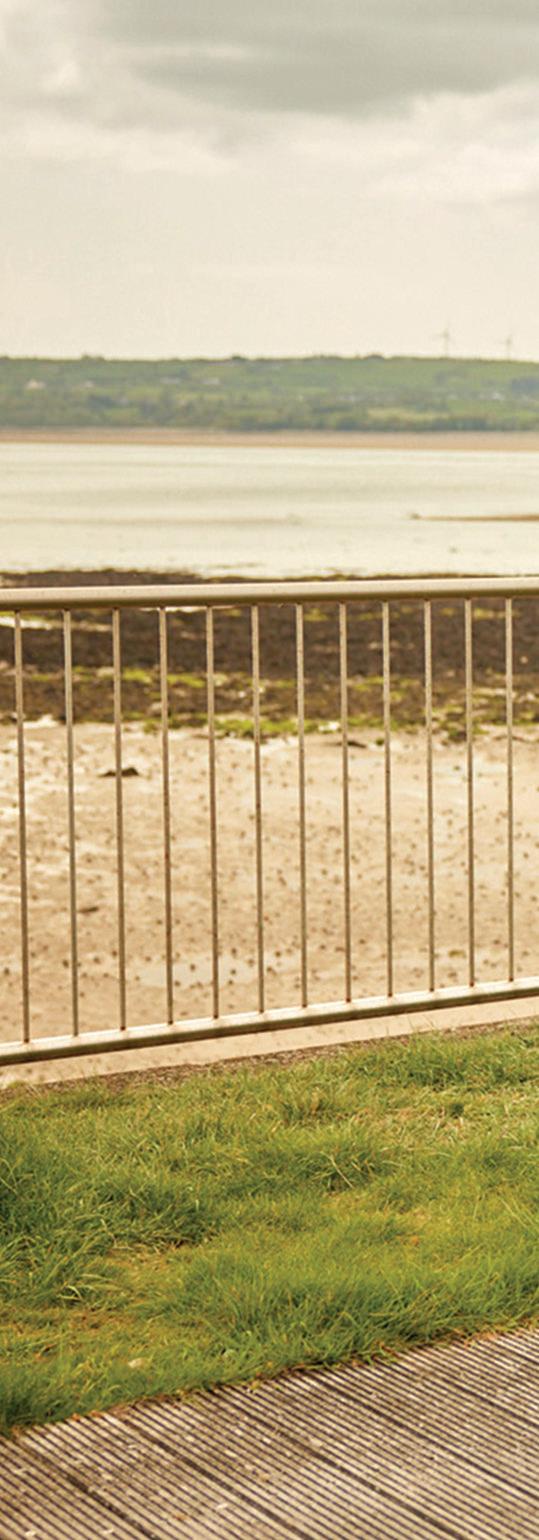
Rosie is just about to launch an online
in Castlebar can forego the plastic in their weekly shop thanks to ‘The Habit Store’, set up by Rosie Joyce in 2021. The aim of the business is to eliminate single use packaging whilst greatly reducing the amount of plastic that people are bringing into their home. The premise of the store is simple; customers

shop for a non-food eco range of products, which will build on the store’s presence. “Once people start shopping this way, they tend to stick with it. For most of our customers, I think they would find it hard to start buying plastic and packaging again.”
In 2021, Rosie won a €10,000 grant through Visa’s ‘She’s Next’ programme. “We were only open three months and were so delighted to win it. It allowed us to launch an entire new range, fit out a part of the store that we didn’t have the means to refurbish previously and go into the new year with a safety net. It was really encouraging to see such a huge company support and invest in small, independent, women-led businesses. There isn’t a huge amount of funding out there for women so the fact they’re running it again this year is great.”
“IT WAS REALLY ENCOURAGING TO SEE SUCH A HUGE COMPANY SUPPORT AND INVEST IN SMALL, INDEPENDENT, WOMEN-LED BUSINESSES.”
your own, I think there’s a tendency to question whether it’s a hobby or an actual business with potential for growth. Winning the Visa grant settled that question and made me realise that actually, I have a really good idea for a business. To get that acknowledgement was a real vote of confidence,” said Fiona.
The idea for Feed Me Mother came from Fiona’s own experience as a new mum. A hunt for fashionable yet functional, comfortable clothes for breastfeeding resulted in disappointment. “All I could find were maternity clothes with a nursing function. I was no longer pregnant and didn’t want to continue wearing maternity clothes, but there was nothing available. That’s when I saw a gap in the market for sustainable, everyday nursing clothes that didn’t resemble maternity wear.”
Market research showed a demand for the type of clothes Fiona was looking for. “The same message kept coming up – you don’t breastfeed when you’re pregnant, so why would you wear maternity clothes? The women we surveyed were enjoying breastfeeding, but their clothing was holding them back a bit. That plays into having the confidence to breastfeed in public. If your clothes are impeding you, it can become stressful and perhaps upsetting.” Fiona began sketching out the ideas she had in her head, which didn’t include the clasps and zips found on nursing tops. “I wanted to design a breastfeeding friendly T-shirt in a comfortable, sustainable fabric that would cover your stomach and make feeding your baby easy.” Today, Feed Me Mother provides a range of nursing tops along with breastfeeding accessories. All clothing is made from Tencel, a fabric made from fibres extracted from the wood pulp of trees that are grown and replaced on sustainably managed forests.
received funding from Visa’s ‘She’s Next’ programme in 2022. As well as contributing to cashflow, the win gave Fiona the confidence she needed to drive the business forward. “When you’re working on a new business at home on
Growing the business is top of the priority list. Export potential into the UK is significant, says Fiona. “We’re also looking at exporting into Europe. After all, breastfeeding happens all around the world so who’s to say the brand won’t work elsewhere?” Opportunities also exist around wholesale, says Fiona. “I’m an online business but I think the brand would work well in lifestyle stores. The ultimate aim is for breastfeeding mothers to have easy access to the clothes they need. That’s what we’re working towards.”

a breastfeeding clothing brand set up by Fiona Fahy in 2021,
“THE ULTIMATE AIM IS FOR BREASTFEEDING MOTHERS TO HAVE EASY ACCESS TO THE CLOTHES THEY NEED. THAT’S WHAT WE’RE WORKING TOWARDS.”

































All staff should receive basic training on the key principles of GDPR and how these will inform the day to day business operations in processing personal data. They will need to know what personal data and sensitive data is and how these two data types should be treated. They should also understand the difference between a data controller, a data processor and a data subject.
All staff should have a basic understanding of the conditions for consent under GDPR in relation to personal and sensitive data. They should understand that consent must be freely given, transparent, easily understood by the customer and be easy to withdraw and that there are no conditions attached to the consent. It should also factor in the need to document and record the consent that has been given and the specific purpose for its use.
All staff should have a basic understanding of the rights of individuals under GDPR including access to their data, the right to be forgotten, the right to have their data rectified and other rights that they are entitled to under GDPR. This section could also include record keeping and keeping personal data only for as long as necessary.
Many businesses already have good guidelines on keeping data secure such as not sharing it with third parties and ensuring that personal data is kept secure. However, the risks are much higher under GDPR. The need to keep all data secure should be emphasised in training. In addition, training should explain what a data breach is and how all staff can help minimise the risk of a data breach by following correct IT procedures.
One of the key challenges around GDPR is the shortened timeline to respond to a data access request. Businesses must respond within one month and in general, there is no fee. It is essential that all staff are trained in and aware of what a data access request looks like, as well as the different channels that a data access request could come through.
All staff should be made aware of how to report a data breach and who to contact within the business should this occur. They also need to know that the business only has 72 hours to report a breach to the Data Protection Commissioner, should it pose a privacy risk to individuals.
The Data Protection Commission has just released new guidance aimed at assisting employers as data controllers regarding their data processing obligations and duties when processing the personal data of their employees, former employees and prospective employees. As data controllers, employers must be mindful of their responsibilities, obligations and duties under the GDPR and the Data Protection Act 2018. The guide is available from the Data Protection Commission website - www.dataprotection.ie





CATHERINE MCGOVERN AT PKF O’CONNOR, LEDDY & HOLMES AND EMMA RICHMOND AT WHITNEY MOORE EXPLAIN THE STEPS EMPLOYERS SHOULD CONSIDER WHEN HIRING ABROAD OR ALLOWING STAFF MEMBERS TO WORK IN ANOTHER COUNTRY

a work model, global employment mobility is gaining in traction and becoming something employers increasingly need to know about. For employees, exibility could be the decider as to whether they stay in a role or leave for pastures new. Employment mobility facilitates that exibility, allowing sta to relocate from one destination to another, for a short period of time or for longer. With such an arrangement, there are both legal and tax implications an employer must consider. “For many companies, remote working has been successful and in theory, they don’t mind if their sta member is working in Cork or in the South of France. It may seem like a simple process, but there are considerations that employers should take note o before going down this route,” says Emma Richmond, Partner at Whitney Moore. Putting in place a policy that sets out the parameters within which to assess an application for working abroad is the rst step, says Emma. “Employees should be submitting that application at least two months prior to their intended date of travel. Without that policy, employers are potentially exposing themselves to risk.”
Employers hiring sta from outside Ireland who intend on moving to Ireland, either need to be an EEA citizen or a citizen of the UK to work here without a work permit. at’s regardless of how temporary the work is. “It is possible to apply for what’s called an atypical permission which allows a person to work for up to 90 days in the State. Aside from that, a normal work permit is required if a worker isn’t an EEA or UK citizen. Once a workers has their work permit, they can take up work in Ireland and are entitled to Irish employment rights.” Whitney Moore has a number of UK clients and sometimes, UK employers don’t realise their employee is not a UK citizen. “I would always say to employers, ask to see a copy of their passport so you’ll be absolutely sure that they’re an EEA citizen. Otherwise, you will have to apply for a work permit.”
If an Irish employee is looking to work in Spain for the summer, from a work permit point of view, they are entitled to do so. “Questions may arise as to the length of time the employee is going to work in Spain and
whether there’s a liability under local taxes. ere may also be a risk that the company is deemed to have a permanent establishment in Spain, so it’s not just the individual’s tax position that needs to be considered, it could also be the company’s too.” Issues around data protection and insurance must also be considered, says Emma. “If an employee is working abroad, an employer must check if their insurance still covers them. Take a situation where an employee is working in a holiday home; I know of one instance where the employee was only covered by the company’s insurance if a risk assessment of the location was carried out. I would recommend an employer contacts their insurer to nd out what their policy is when it comes to employees working remotely abroad.”
Even if it’s only for a week, employers need to ensure they’ve done their homework
when dealing with an employee working abroad. “An employer may think, what’s the worst that could happen, but what if a data breach occurs and it’s sourced from the employee working abroad? Employers need to avoid exposing themselves to risk by putting a rigorous policy in place that covers all possible circumstances.”
Catherine McGovern, Tax Partner at PKF O’Connor, Leddy & Holmes, is seeing queries from employers with employees working abroad coming across her desk on a weekly basis. “For industries like professional services, employers are reluctant to lose sta so if an employee wants to work abroad, provisions are made to allow that to happen.” Generally, there are two types of scenarios. “You have an employee that has been recruited to work entirely abroad. For the most part, this is a straightforward process but the employer must ascertain if any days are spent working in Ireland. If there are, the employer may have to apply to Irish Revenue for an exemption. However, they still need to obtain local foreign payroll advice.”

e second scenario is more complicated - if an employee is working in more than one country, someone who is working part of the week in, for example, Northern Ireland and the rest in the Republic. “If the employee is classi ed as a non-Irish tax resident, they’re only taxed in Ireland on their remuneration based on their Irish workdays. However, there will be UK payroll implications in Northern Ireland also. If they’re Irish tax resident, they are taxed on 100% of their remuneration in the Republic and a foreign tax credit can be applied to reduce the Irish tax (subject to Revenue approval).” Employers should note it could take months to organise these reliefs with Irish Revenue. In any scenario when you have an employee working abroad, you must get local foreign corporation tax advice to clarify whether their activity would create foreign corporation tax. Initially it’s a time consuming process, requires liaising with foreign tax advisors and can be complicated if it’s not done right from the start.” It’s a complex issue and not one that employers should take lightly. “I would say to any employer going down this road - get advice and get it early.”



Affected employees must be given clear and adequate notice of the nature and time of any disciplinary procedures implemented by the employer. An employee should never arrive at an investigation meeting or a disciplinary hearing and be surprised at the seriousness or nature of the meeting.
For an employee to answer an accusation, he or she must know what accusation has been made. Prior to any investigation meeting or disciplinary hearing, the employee concerned must receive written notification of the meeting or hearing. That notice should set forth the allegations or complaints against the employee in enough detail for the employee to understand the issues that will be discussed.
Employees must be given a full and fair opportunity to respond to any allegations against them. The employee must have a chance to tell their side of the story, including any reasons they think might justify their actions or mitigate the penalty for a wrongful action.
It is imperative that the manager listens without comment or judgment to these rebuttals, clarifying any issues that arise, including any areas where there might be a conflict of evidence. Therefore, disciplinary hearings should always include management asking the employee if there is any other relevant information the employee wants management to consider in making its decision.

EVERY DISCIPLINARY PROCEEDING HAS ITS OWN UNIQUE CONTEXT AND CIRCUMSTANCES. BETTER BUSINESS OUTLINES A LIST OF COMMON MISTAKES EMPLOYERS MAKE IN IMPLEMENTING A DISCIPLINARY PROCEDURE
When an employer invokes its disciplinary procedure, the employee has a right to be represented during any investigation meetings or disciplinary hearings. The 2000 Code of Practice for Grievance and Disciplinary Procedures states that for the purposes of the code, ‘employee representative’ includes a colleague of the employee’s choice and a registered trade union, but not any other person or body unconnected with the enterprise.
In organisations that recognise a trade union, this issue is straightforward because a shop steward or union official is normally the chosen representative accompanying the employee. Where there is no union involved, the question as to who can represent an employee present issues that are more complex.
Where an employee wants to bring a trade union representative to a disciplinary meeting in a company that does not recognise trade unions, it is important for the manager conducting the meeting to state that the representative is attending in a personal capacity and the representative’s presence at the meeting in no way confers collective bargaining rights or recognition on the trade union.
In some circumstances, employees have asked to bring a legally qualified representative. Where the seriousness of the allegation, if proven, could result in dismissal, an employer could be deemed to have not allowed appropriate representation if it refuses to allow the employee to bring a legally qualified representative. Regardless of who represents the employee, the principles remain the same. The company must put forward the allegations and allow the employee to respond in full, giving any reasons or mitigation to explain his or her side of the story.
During disciplinary procedures, employees are entitled to a hearing by a manager who is impartial and who will keep an open mind until all evidence is gathered and evaluated. Failure to keep an open mind throughout the procedures will undermine any disciplinary decision and place that decision at risk of challenge. In order to maintain not just an appearance but the substance of impartiality, it is essential that a full response to the allegations is elicited and considered without any indication of pre-judgement.
It is implicit in fair procedures that there is a right to appeal any sanction or punishment applied. The right to appeal and the avenue of appeal should be clarified at the first meeting between the parties. Moreover, upon communicating the disciplinary decision to the employee, he or she should be reminded of the appeal mechanism.
Once the hearing has been held, the employer should take adequate time to fully consider all evidence presented. The more serious the issue or the possible disciplinary sanction, the more time required to consider it. Balance is required between properly considering all evidence to make a decision and not delaying a decision unnecessarily.
When the decision has been reached, the disciplinary meeting should be effectively reconvened and the outcome should be communicated to the employee concerned, verbally, with his or her representative present and immediately confirmed in writing. It is appropriate at this point also to outline again the avenue of appeal, including any instructions as to how an appeal can be lodged.
Section 14 of the Unfair Dismissals Act 1977 requires an employer to give an employee a notice in writing setting out the procedure which the employer will use for the purpose of dismissing an employee. This procedure must be given to the employee not later than 28 days after the employer enters into a contract of employment with an employee.
It is vital that employers sufficiently document all disciplinary procedures and maintain proper records. Employers should keep all witness statements, physical evidence, electronic evidence, warnings and notes of investigation meetings, disciplinary hearings and appeal hearings. Such documents may prove crucial in defence of any claim taken by an employee on foot of disciplinary action.
In June, the SFA made a submission to the Workplace Relations Commission (WRC) on the consultation on Code of Practice on the Right to Request Remote Working. e WRC invited interested parties to make submissions to inform the development of a Code under the Work Life Balance and Miscellaneous Provisions Act. Under the Act, four new distinct employee rights have been introduced – the right to request exible working for caregiving purposes, the right to unpaid leave relating to medical care, the right to paid domestic violence leave and the right to request remote working.
e new Act provides a legal framework for requesting, approving or refusing a request for exible or remote working but not an automatic right. e SFA believes that company level actions tend to be more e ective, as they are tailored to the needs of the business and its employees. erefore, we support the creation of a Code, as it will allow company-level agreements between employers and workers to promote and manage requests for exible and remote working.
e Code of Practice should facilitate company
THE SFA SUBMISSION DREW THE WRC TO THE FOLLOWING POINTS:
Existing legislation in the areas of GDPR, health and safety and protected family leave entitlements
WRC’s Code of Practice for Employers and Employees on the Right to Disconnect


HSA’s Occupational Safety and Health Guidance on Remote Working
Di erent workplaces need to be accounted for, for example education and care settings, in which remote working may not be suitable
Di ering needs of workers need to be accounted for


and responsiveness is essential to companies’ competitiveness, particularly those operating globally
The negative impact of remote working, for example work related stress, di culties maintaining boundaries between home and work, social isolation, managing change in work, bullying etc That requests for fully remote or hybrid working will have di erent considerations
Return to work situations ie after illness, long term illness, protected family leave or where occupational health have indicated mental wellbeing needs or work-related stress symptoms

Access to broadband and infrastructure in regional and remote locations.

EMPLOYERS NEED TO OFFER TAILORED SOLUTIONS AROUND THE WORK LIFE BALANCE ACT, WHICH ARE BOTH APPROPRIATE TO THEIR BUSINESS MODELS AND THE NEEDS OF THEIR EMPLOYEES
level actions that comply with the requirements of the Act. By doing so, employers are better able to ensure tailored solutions which are both appropriate to their business models and the needs of their employees.
SFA’s Chair, Geraldine Magnier and Director, David Broderick attended the National Economic Dialogue on the 12th of June. The National Economic Dialogue is the principal institutional forum for public consultation and discussion on the Budget. This annual stakeholder engagement event is hosted jointly by the Department of Finance and the Department of Public Expenditure, NDP Delivery and Reform. The Dialogue provides a deliberative forum for stakeholders to participate in an open and inclusive exchange on the competing economic and social priorities facing the Government.
Discussions at the Dialogue focused on the theme of 'The economy in 2030 – enabling a sustainable future for all'. SFA Chair Geraldine Magnier addressed the dialogue in the plenary session. Her speech focused on boosting competitiveness and reducing regulatory burden for Ireland’s small business owners.


SHOULD: :


Allow employers to require employees to use a precedent form or template to make a request for flexible and remote working
Contain information on what type of further information an employer may seek when considering a request
Allow employers and employees to meet to discuss a request where necessary
Include information for employers and employees on what is and isn’t suitable, as a proposed remote working location
Contain information and examples of the type of information to be included in an employer’s written agreement to a request

Provide employers with examples of notices informing an employee that a request has been refused
Direct employers to information and training on handling information submitted about the person whom the request for a flexible working arrangement for caring purposes is made
Include non-exhaustive examples of grounds for terminating an approved remote working arrangement where the employer believes that abuse of the flexible or remote working arrangement is taking place
Direct employers and employees to information and training on workplace wellbeing.
The Chair stated that embedding competitiveness is critical to building resilience in small businesses across the economy. Ireland must continue to invest in the competitiveness of our smallest employers by focusing on supports for capital investment, innovation and skills development. The tax environment for small indigenous businesses should also be improved to encourage small firms and entrepreneurs to scale and grow their businesses and to help sta retention and attraction.
She highlighted that 2023 has been challenging for small business owners in the area of employment law with the introduction of Statutory Sick Pay from January 1st, a minimum wage increase and a new public holiday. Whilst many of these policies have merit on their own terms, they are making the business landscape more di cult for small firms.
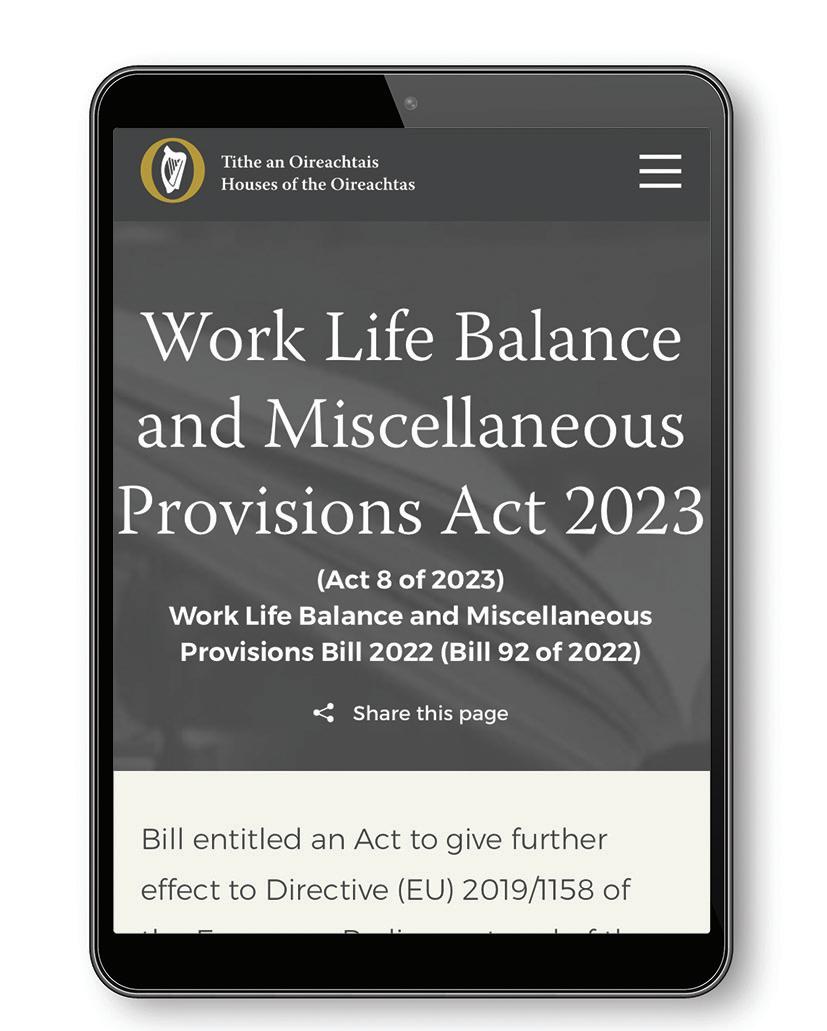
As we transition to a green economy, the SFA Chair called out the pressure that business owners are under to make investments and on the management of new and emerging environmental regulations and reporting requirements, all of which is essential if they and the small business community are to meet their sustainable obligations and targets under Irish and EU legislation.
To secure and improve Ireland’s competitiveness, the Association believes that we must give small firms regulatory breathing space. The SME Test must be applied to new legislation and regulations across all Government departments without exception.
The Chair concluded by saying that Budget 2024 must focus on ensuring Ireland remains an attractive and competitive place to create and scale a business, through measures that reduce regulatory burden and boost competitiveness.
Share your views: To share your views on these topics or to raise any other policy concerns, contact Elizabeth Bowen, SFA Public A airs Lead, on 01 6051530 or elizabeth.bowen@sfa.ie
In between the long summer days, the juggling of annual leave, school holidays, staycations and vacations for those who can, the workplace tends to wind down a little. While the typical day-to-day pressure for many is lifted to reflect the mood of the season and time of year, it also means employees may have more time to reflect and take stock, with many giving considerations to job satisfaction and their role within a company.
“As we head full swing into the summer, many of us are enjoying the long stretch in the evenings, sitting in the back garden or on a sunny balcony, making time to relax and feeling like we have some extra time to think. It’s only natural that job satisfaction is top of mind for many as it forms such a big part of our everyday lives,” says Rachel Fitzell, Inside Sales Manager for One4all Rewards.
She says, “Everyone wants to feel valued for what they do. It’s what gives us job satisfaction. Whether it’s through salary renumeration; a promotion; extra responsibilities; investment in additional training for career progression; or even just a few simple words of acknowledgement for a job well done – employee rewards and recognition are a leading component for why employees stay in a company.

“And there’s the more human aspect of employee recognition and rewards. The obligatory birthday cake and sing-along by everyone in the workplace is back after being missed during Covid – always cringey but secretly loved! The acknowledgement for long service or a celebratory gift as an employee finishes up before going on maternity or paternity leave – these are all ways companies can show appreciation and show an employee is valued.”
Typically, companies tend to think of showing their employees recognition at the end of the year, ahead of Christmas - a time of the year more universally associated with rewarding employees. However, there are multiple ways to create occasions to celebrate and make an employee feel valued across the year. For example, employee milestones, meeting or surpassing targets, team motivation or general recognition, in addition to birthdays, maternity leave, paternity leave, long-service, and retirement.
Rachel says, “Many companies are aware of the government’s Small Benefit Exemption however, not everyone is aware that it now extends to twice per year. So, in addition to Christmas time, employers can show their appreciation at any time of the year with a gift card.” Under the Government’s Small Benefits tax exemption policy, businesses can reward their staff up to €1,000 per year, completely free of tax, PRSI and USC. With One4all Rewards, you can offer your staff tax-free gift cards on an ongoing or annual basis, saving up to €1,313.54* per employee. The maximum reward of €1,000 can be split across two payments in one financial year.
Employee rewards and recognition are crucial for employee motivation and retention. For more information on employee rewards and incentives, contact the experts at One4all Rewards on (01) 870 8181 or email corpsales@one4all.ie.
“MANY COMPANIES ARE AWARE OF THE GOVERNMENT’S SMALL BENEFIT EXEMPTION HOWEVER, NOT EVERYONE IS AWARE THAT IT EXTENDS TO TWICE PER YEAR.”
The KeepWell award winners were also announced at the event. These are the top six companies that have excelled across key areas of their KeepWell accreditations during the last year. The six companies presented with best-inclass KeepWell awards were:
Company of the Year (SME) – Horse Racing Ireland
Company of the Year (Large) – Oracle EMEA


Best in Class Mental Health – William Fry
Best in Class Leadership – Fexco
Best in Class Nutrition – Teva Pharmaceuticals Ireland Ltd
Best in Class Physical Health – Cork County Council




Ibec hosted the rst ‘Leading in Wellbeing’ lunch on April 27th, ahead of the annual National Workplace Wellbeing Day which has become a staple date in the diary for businesses large and small around Ireland.
e lunch, emceed by presenter and fashion designer Brendan Courtney, took place at the Clayton Hotel Ballsbridge and was created to recognise and celebrate those companies who are leading the way in moving the dial on wellbeing, mental health and inclusivity in the workplace.
Guests were treated to a keynote by Neil O’Brien, coach and author of ‘A Time to Fly’. Neil spoke about the future of workplace culture and encouraged attendees to simplify when it comes to wellbeing and focus on what really matters to people –connection.
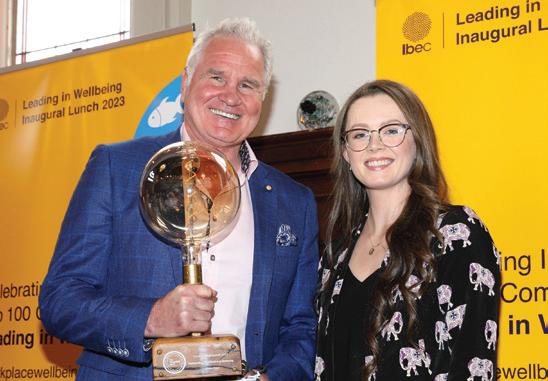
Brent Pope, mental health advocate and rugby pundit, was honoured for his outstanding contribution for his work in promoting mental health awareness. On accepting the award, Pope urged greater understanding about the challenges that many people deal with during their lives related to mental health and wellbeing. is year, Brent has launched a nationwide awareness campaign, ‘ e Elephant in the Room’, which sees a herd of elephant sculptures created and sponsored by di erent organisations popping up around Ireland. e ‘elephant in the room’ of course refers to mental health itself. e campaign aims to start the conversation around mental health issues, from the school yard to the boardroom. e team are raising money for Samaritans, who is their chosen charity for 2023.
For more, go to www.elephantintheroom.ie
Inspiration for the lunch and a key element of the day was the launch of the ‘Top 100 Companies Leading in Wellbeing’ index, in association with Business & Finance media group. The index recognises the top 100 businesses of all sizes for their exceptional contribution to employees’ social, mental and physical wellbeing. It is now live and can be viewed on the Ibec website, under ‘corporate wellness’. Congratulations to all companies listed for 2023!


An inclusive workplace supports employee wellbeing through its positive e ects on employees’ race, gender identity, sexual orientation and expression, which fosters a rewarding mix of creativity, inclusivity and partnership that translates into a highperforming, collaborative driven company.
For the majority of us, the workplace serves as a crucial social space. We want to be our true selves and belong at work, while bringing the whole person to work. We also want our coworkers to be free to do the same. For LGBTQIA+ individuals and many other marginalised groups, that’s not always achievable, whether as a consequence of ongoing prejudice, past discrimination or other external impediments to inclusion.
Understanding the complex and varied experiences of LGBTQIA+ cohorts require an understanding of the socio-historical context in which they grew up. Human sexuality is a hugely complicated topic that a ects a person’s physical, emotional, mental and societal wellbeing. Legal developments have a ected the lives of lesbian, gay, bisexual and transgender persons in Ireland over the past 30 years. There is now legislation to protect against discrimination based on gender identity or sexual orientation in the workplace or in a public place within Ireland. Perhaps Ireland’s biggest victory in LGBTQIA+ history was the national referendum that resulted in marriage equality (Marriage Equality Act, 2015). However, this only a ected LGBTQIA+ people who wanted
to enter a same sex marriage. Within today’s society, this minority group experience a more liberal Ireland and are now legally permitted to marry, inherit property based on their state-sanctioned
relationships, adopt children and receive government benefits. But living free from discrimination in all spheres of life is still a challenge and much stigma still exists in places, including employment and our wider society.
David Casey is DeCare’s Head of Health Promotion and a Doctorate Candidate of Trinity College Dublin. Find out more about our dental, vision and wellness programs at decare.ie








Hid your significant other’s identity from strangers? Were concerned about being yourself at work or concerned about being yourself with your family? Have you been worried about being yourself when out and about or heard teasing on the street while going about your own business? Have you ever been reluctant to hold your partner’s hand in public? Have you experienced physical abuse while acting normally because you are a member of the LGBTQI+ community or witnessed this abuse?
If this is you, a friend or a work colleague, the battle for equal rights is far from done. A small business can help create a supportive environment for everyone. While we celebrate diversity and inclusion all year round. Employees should be able to share their stories, experiences, and ideas at work to make the workplace a better environment for every one of us. Allyship is so important both inside and outside the workplace. It means inclusion does not just fall on LGBTQIA+ employees but the entire workforce. Understanding pronouns, and evolving LGBTQIA+ terms as well as all of the multiple flags, can feel a bit overwhelming, and sometimes individuals may be reluctant to ask questions out of fear of o ending. Trainings and workshops are provided for entire workplaces with vendors such as LGBT+ Ireland and prideatwork.ie and the Irish Centre for Diversity. While wellness programs and initiatives can provide relief and support they can fail to address the issues of stress for LGBTQIA+ employees. These stressors could be viewed as minority stress, a particular kind of social stress that people from stigmatised groups are subjected to as a result of their minority status. Help create safe and supportive environments 365 days of the year and make this a priority for your small business today. Lead with inclusive language and train your people and your teams. A workplace should be a place where we can thrive not just survive.
SAFE AND SUPPORTIVE ENVIRONMENTS SHOULD BE A PRIORITY FOR EVERY BUSINESS ALL YEAR ROUND, NOT JUST FOR ONE MONTH
HeadofWellness for DeCare andDoctoralCandidate,
Pinergy, the clean energy supply and solutions company, has announced the launch of a €30 million fund to accelerate the delivery of solar energy to businesses across the country. Funded Solar is a new service for commercial energy users that will enable them to access lower-cost renewable energy as they get ready for the energy transition.

As part of this new service, Pinergy will design, install and maintain the solar PV installation in their clients’ commercial properties with no capital outlay for the business. The client will agree a Power Purchase Agreement (PPA) with Pinergy to buy electricity generated by the solar panels, which
will be lower cost than prevailing prices from the grid. When the €30 million fund is fully taken up, the renewable energy generated would meet the equivalent needs of 7,000 typical homes, reducing demand on the grid.
The new service enables commercial clients to experience the benefits of a solar PV installation without the upfront capital cost, whilst ensuring the business can immediately benefit from the generation and use of renewable energy. As a result, clients will see their operating expenses and cashflow improve as they will require less electricity from the grid, thus resulting in reduced energy prices and increased energy security for the next 25 years.
This new funded solar service will enable businesses of all sizes with good roof space to utilise renewable energy to reduce their carbon footprint and move towards a more sustainable business model. The initiative is ideally suited to commercial energy users across a range of sectors including retail, hospitality, leisure, manufacturing, logistics, pharma and industrial sectors who have seen their grid energy costs increase in recent years.
Enda Gunnell, CEO, PinergySpeaking at the launch of the new €30 million solar energy fund for businesses, Pinergy CEO, Enda Gunnell, said: “Many businesses have been faced with rising operating costs due to volatile energy markets over the last few years. We recognised that there is need to provide a simple solar solution that maintains security of supply while reducing costs to businesses across the country, while also enabling them to play their part in a sustainable energy future.”
He added: “The Pinergy Solar Fund is our solution to meet the needs of many businesses who are not ready to make the upfront capital investment that solar projects traditionally require. We are delighted to be able to bring this new service to the market. Pinergy will fund the initial installation and maintain the solar PV project, while at the same time our clients benefit from certainty and reduced energy prices for the next 25 years.”
Pinergy was recently awarded the ‘Green Energy Company of the Year’ at the 2023 Chambers Ireland Recognition Awards. The category award celebrates the company which has stepped up in innovative ways to play its part in helping to make a positive impact on the environment.












IN HIS NEW BOOK, STEVE DENEHAN CONTINUES TO DISCOVER MAGIC IN THE MUNDANE. JOSEPH O’CONNOR CHATS TO THE AWARD-WINNING POET ABOUT HOW HIS LATEST COLLECTION OF WORK CAME ABOUT AND THE MEDICINAL POWERS OF WRITING.





at’s the challenge Kildare-based poet Steve Denehan faces in his cra . Because for him, the aim of writing anything is to give the reader an emotional reaction on their rst read.


“ ere’s de nitely something about poetry that makes it unique,” says Denehan. “ at idea that you have to narrow your focus and be very impactful in just a few words. I nd that really powerful and interesting. It’s not easy to a ect someone and to get that in 20 lines is extra special. Reading a poem and being le with a gut punch at the end is an amazing thing. It’s a challenge to get that, but a great thing to aim for.”
Denehan aims and hits the mark again in his h poetry collection, As If It Meant Something Described as “one of the most talented contemporary poets” and twice winner of e Irish Times’ New Irish Writing, Denehan is a master of bringing meaning to the mundane. In his poetry, he re ects with sincerity and humour on the mediocrity of things, providing immensely moving moments through themes including innocence, mortality, love, loss, and the general gripes of everyday life.
Denehan discovered his knack for poetry in h class at St. Patrick’s Boys’ National School in Drumcondra. ere, he found inspiration in two people: his teacher, Mr. Shanahan, who opened his students up to the world of creative arts, and fellow pupil Davoren Hanna, a quadriplegic boy who, despite passing away at the age of 19, became an accomplished poet.
“Daveron was a brilliant guy and a child prodigy,” Denehan explains. “Because we had him in the class, and we had Mr. Shanahan, it was like a perfect storm. Poetry, short stories, comics — everything was on the table. It was around that time that I rst started writing.”
A er his school days, Denehan was drawn to many forms of prose, particularly screenplays, but says when his daughter Robin was born and spare time became more scarce, it was easier to write shorter pieces. With that came poetry.
Now, along with his ve collections and two chapbooks, Denehan has a ra of publication credits, including Poetry Ireland

As if it Meant Something is available to purchase now at renardpress.com, Easons and selected bookstores

Most of us have been moved to tears by words on a page. Usually, it happens after consuming hundreds of them and becoming deeply invested in a story’s characters and plotlines. But what about when the writer has less than 200 words to similarly move their audience?Steve Denehan
My daughter asks, again, why her friends don’t invite her over I have no answer my wife tells me that her job is getting harder that the tra c is getting worse the phone rings my mother speaks in hurried whispers tells me that my father is a danger behind the wheel that she is afraid in the car with him my father comes on tells me that his mind is going asks me to sort out his car insurance
I hear my sister arguing in the background my father puts her on we have nothing to say to each other
I look out the window the rain is sheeting the gutter is broken, and a column of rainwater muddies the grass the shower went bang yesterday
my phone beeps
a message from the repair guy he will not make it this evening a er all makes no o er to reschedule
there is a bill on the kitchen table
a sheaf of paper held together by a paper clip
I like the paper clip it is perfect has only one job does it well


I wish I was a paper clip before I realise I am
keeping things together while being pulled apart
Paper Clip was previously published by Púca Magazine in 2022
One glance at his @SteverinoD account on Twitter, where he regularly shares poems, tells you they keep coming.
Penning one poem a day on average, Denehan says there’s no secret methodology to how he works, he just loves writing about the insigni cant things. “It’s a cliche, but when it comes down to it, the small things really are the big things,” he says. “I wouldn’t have read a whole lot of poetry, and what I read in school was very dry. I like conversational writing. If you need a dictionary beside you, you’re breaking the ow. I like to get the message across without tripping it up on the way by over-complicating it.”
It’s no surprise to hear then that Denehan’s literary heroes include Charles Bukowski and Raymond Carver, the kind of writers who are not out to dazzle you but wear their hearts on their sleeves. “Just recently, I re-read one of Bukowski’s last books before he died,” he says. “I love the contrast of him writing about the harder times in his life, juxtaposed with accounts of his daughter and his unashamed love for her, or his love for a sun ray that enters his writing room.”
Such in uences are evident in Denehan’s work when he captures such tender moments with his daughter in Purple and Impossible Questions from My Daughter or expresses the di culty of watching his father’s battle with dementia in Whittled. But there’s plenty of room for humour, too, like in anonymouse_weezil, where he re ects on what his dream about eating the back of his hand might mean, or A er a Two-Hour Conversation with Amazon, which details the frustrations of a customer service call.
e 140-poem collection also includes the delightful Paper Clip, a poem that took on a life of its own on Twitter when Denehan tweeted: “ is is a poem that was rejected everywhere. According to an editor from a bigshot journal, it was ‘too personal’, but I always had a so spot for it. I was just about to retire it when Chris from Púca came along to save the day.”
Despite it lying in the rejection pile for some time, the poem’s honest account of the di culty we face keeping on top of our everyday responsibilities encapsulated superbly in its closing lines truly resonated and was retweeted hundreds of times. “Yeah, it just kind of took o and kept going,” says Denehan. “It was an interesting thing, and it was from all around. I was getting messages from places as far as Singapore.”

As If It Meant Something came about a er Denehan submitted his work to indie UK publisher Renard Press, which, nine months later, proposed putting a
collection together. While Denehan welcomed the o er, he was initially reluctant. For him, once a poem sits on the shelf for some time, it’s yesterday’s news.
“ e freshest stu is the work I think is strong,” he explains. “If something is a few weeks old, it’s ancient history. So I said, ‘ at’s great, but could I give you newer stu that I think is better?’ e publisher said they were invested in the poems and wanted to stick with them but suggested sending more. So I sent on another 60, and they wrote back that they really liked them and ended up adding them in. It’s been a great experience working with Renard on it.”
e experience of going through older unpublished work to put it together—not so much. For Denehan, it was a tough process. “I spent a week re-reading my work, and it was painful,” he says. “I just want to write a poem and get it done. I nd that when I’m writing, I’m getting it out of my head. When I re-read it two or three years later, I’m rehashing it.”
A er all, writing poetry for Denehan is a cathartic experience and something he describes as ‘selfmedication’. “A lot of it is about the mundane, but an awful lot of it is me trying to x my head or organise things in a way that makes sense to me,” he says. “I get frustrated about things, and when I write a poem, it takes some of that out of my brain, and I forget about it. Usually, when I write poems, I don’t read them again.”
Nor does Denehan spend much time involved in the poetry scene in Ireland or attending publishing events. He’s done some readings here and there but says he would prefer to stick with what he knows best: putting pen to paper. “What’s the famous Groucho Marx quote again? ‘I refuse to join any club that would have me as a member’,” he jokes.
at doesn’t mean Denehan isn’t getting calls from top international publishers and agencies. e Opiate has proposed compiling a book of Denehan’s poems previously featured in the journal. He has also received proposals from production companies to turn some of his poems into short lms, including one from a US-based animation house that was set to go into production until the pandemic hit.
Most recently, science ction publisher Spaceboy Books commissioned Denehan to put together a book of science ction poetry. While it’s a very di erent genre for him, Denehan says it’s going well, and he’s about 70 or 80 poems in.
So does that mean a potential departure from the work he’s best known for? A move from real life to fantasy? Denehan doesn’t think so. “Mr. Shanahan calls me ‘the people’s poet’ because it’s the everyday stu I write about, the things people connect with. I suspect that’s what I’ll stick with.”
Any reader of Denehan’s poetry will take solace in that. More gut punches ahead for them.


Poland is open for business, says the country’s Investment and Trade Agency. In recent years, Poland has achieved stable economic growth due to factors such as an affordable skilled workforce, the increasing value of foreign direct investments (FDI) and a stable banking sector. This has allowed Poland to be the only EU country that resisted the 2009 recession and to quickly mitigate the impact of Covid on its GDP growth. Although the war in Ukraine has been challenging for all global economies, it’s worth noting that Poland has been through turbulent times in the past 30 years which resulted in its strong and robust society.
According to Enterprise Ireland, Poland is a particularly good market for Irish SMEs. Many companies already doing business in Poland started early in their exporting history, as it’s a relatively low-cost market and easy to access from Ireland. Poland offers a good return for low investment compared to other territories and is a valuable and strategic foothold into Central and Eastern Europe (CEE).
Capital: Warsaw
Population: 38.491m
Currency: Polish Zloty
Unemployment: 3.8%
Poland is the sixth largest economy in the European Union, closely behind the Netherlands, Spain, Italy, France and Germany

Since joining the European Union in 2004, Poland’s GDP has shown stable growth. Poland was also the only EU country to resist the 2009 economic recession
Compared to other EU countries, the Covid-19 pandemic influenced Polish GDP growth to a lesser degree and the Polish economy recovered swiftly in 2021
For 2022, all major rating agencies have kept their rating for Poland unchanged compared to the previous year, giving it a very stable outlook
Poland has also one of the lowest consolidated gross debt to GDP ratios comparing to other EU countries, including countries from the CEE region.
AS ONE OF THE FASTEST DEVELOPING EU COUNTRIES IN RECENT YEARS, POLAND IS AN EXCELLENT OPTION FOR IRISH BUSINESSES LOOKING TO GO GLOBAL
Poland is an Academic Hub with:



- Over 300 institutes of higher education
- Over 1.2 million students
- Around 350,000 graduates a year with approx. 20% graduating with engineering/ technical majors
For the past 10 years, Poland has consistently been within the first 10-16 countries ranked High or Very High Proficiency Index and is one of the leaders in this area among CEE countries
Poland is recognised by the UN as a very highly developed country due to its high Human Development Index (HDI)
Competitive labour costs (EUR/h) compared to the EU average in 2021, taking into account skilled workforce
- Average EU (EUR/h): 29.10
- Average Poland (EUR/h): 11.50
Poland is the biggest beneficiary of EU cohesion and regional development funding, a significant part of which is addressed to enterprises for R&D, innovation and environmental projects
Investors can obtain a CIT exemption under Polish Investment Zones and apply for Polish government grants for strategic projects throughout Poland

Poland provides for a wide range of tax preferences for innovation and R&D, including R&D relief, IP BOX and relief for automation.
For more information on doing business in Poland, visit www.paih.gov.pl/en and www.globalambition.ie
DESCRIBED AS A MASTERPIECE OF SOCIAL HISTORY, ‘BAD BRIDGET’ UNEARTHS A WORLD WHERE IRISH WOMEN OUTNUMBERED IRISH MEN IN PRISON. HERE, WE DISCOVER THE CASE OF ELLEN NAGLE, CONVICTED FOR STUBBORNNESS IN 1903
‘Bad Bridget: Crime Mayhem and the Lives of Irish Emigrant Women’ by Elaine Farrell and Leanne McCormick, published by Sandycove, is available in all good bookshops

Irish-born Ellen, described as ‘Handsome, petite and a dashing little blonde’, had run away from her family home at 99 Warwick Street in Boston’s South End almost a week earlier.
Ellen blamed ‘bad girls’ for coaxing her onto the streets. Her father, William Nagle, clearly vexed by her behaviour, had her arrested and placed on probation, so that her activities would be closely monitored by officials. A little over a year later, on 13 May 1903, he had Ellen arrested again, and this time she was imprisoned for twelve months in the Massachusetts Reformatory Prison for Women in Sherborn. Her crime, as William Nagle and the courts saw it, was being a ‘stubborn child’: an offence recognized in Massachusetts legislation as far back as 1641 and still prosecuted in the twentieth century.
Ellen Nagle’s parents, William and Ellen Nagle, had emigrated from Fermoy, County Cork, to Massachusetts in 1887. Their three children, all under five years old, had remained behind in Ireland with relatives. William was a baker by trade, and he and his wife likely wanted to secure work and a place to live before bringing their children over (Ellen Senior was pregnant at the time with their fourth child, which may also have been a factor in the decision to travel without the children.) The Nagle children followed their parents to America in 1888, and there met their new baby brother, George, who had been born in Massachusetts in January of that year. Subsequent siblings followed. By 1900, Ellen Senior had given birth to ten children, seven of whom were then living. The environment in which William and Ellen Senior raised their Irish-and Massachusetts-born children, with its department stores, dance halls, cafes and restaurants, saloons, and indoor and outdoor amusement venues, meant an upbringing that was very different to their own.
Ellen Nagle was one of fourteen girls and women, ranging in age from seventeen to twenty, who entered the Massachusetts Reformatory Prison for Women for the offence of stubbornness in that year. The offence could encompass a multitude of behaviours, but for girls especially it was often connected to perceived or threatened sexual immorality. In New York and Toronto, girls and women were similarly punished for being ‘wayward’, ‘incorrigible’ or ‘out of control’. From 1886, New York City legislation allowed for the incarceration of girls aged twelve or more who were found in brothels or who were ‘wilfully disobedient’ to their parents or ‘in danger of becoming morally depraved’. Such legislation covered a very broad
spectrum of behaviour and allowed the courts (and parents) a flexibility to charge girls who were known to be frequenting brothels, as well as those who defied their parents’ orders, associated with particular companions, or went to dances or other social venues at night. Parents could thus resort to the courts in an attempt to induce obedience. In the same year in Toronto, a Morality Department was established to focus police attention on girls and women whose sexual behaviour was seen as a threat to themselves and others.
Long before Ellen Nagle was locked up for the crime of stubbornness, Irish-born juveniles frequently found themselves on the wrong side of the law. In the twelve months preceding 30 September 1873, 2,009 male and female juvenile suspects were brought before the courts in Massachusetts. Of these, over 70 per cent were Irish-born. And Ellen’s father was far from unusual in having initiated his daughter’s incarceration. Of those who entered the State Industrial School for Girls in Lancaster, Massachusetts, in its first year in 1856, 41 per cent were committed by parents, 32 per cent by the state, 6 per cent by concerned citizens, and 21 per cent by other agents (some of whom would have been acting on behalf of parents).
A variety of institutions attempted both to punish and to reform young women and girls. The Massachusetts Reformatory Prison for Women, where Ellen Nagle was sent following her conviction for stubbornness, had opened in Sherborn, around twenty miles from Boston, on 7 November 1877. Its establishment was influenced by contemporary nineteenth-century views across Europe and North America that women offenders were best served in distinctly female prisons with a largely female staff. The institution was the result of several years of campaigning by philanthropic individuals and societies in Massachusetts. It was based on fears that without a prison structure tailored to their gender, girls and women would be unable to reform and would leave prison more criminal than when they entered. Male wardens were also a concern. In 1874, Massachusetts lawyer and politician Emory Washburn argued: ‘There is something positively revolting in the idea of shutting up women, few or many, under the care and control of a body of rough, coarse men, and practically without the pale of any outside influences in their favor.’ Women’s prisons, on the other hand, would ideally have a female staff to ensure the reformation of erring girls and women through an orderly system of discipline, work, education and religious instruction specifically tailored to their sex.
On 6 April 1902, the Boston Post carried the headline ‘Ellen Nagle found’. Police officers and the public who had been on the lookout for the seventeen year old must have breathed a collective sigh of relief.
5.30AM I’m an early to bed, early to rise person. I get up a couple of hours before the kids, which gives me time to plan out the day. Some mornings I’ll go for a walk with my eldest or go to a PT session with a friend. 7.30AM I get the younger kids up and ready for school. 9AM Once I drop the kids to school, I’m back in time for breakfast with my husband and older kids. I have seven children, so there’s not much downtime! Breakfast is usually something light, like scrambled eggs. I’m a creature of habit so tend to stick to the same breakfast every day. 9.30AM The Tarasis o ce is next door, so I divide my time between my home o ce and there. We have four di erent divisions – housing, healthcare, renewables and support services – so my role primarily is to support each of the teams. No two days are the same here; our Evolve academy, which was set up to promote equality and support female founders and entrepreneurs, is in its second year and will be kicking o in September. I’m also an ambassador for Vital Voices and for Savvitas, both global female-led organisations. In addition, myself and a number of other female entrepreneurs are hoping to set up an investment fund to support new start-ups. My role is very varied and that’s the part I really enjoy. 6PM My younger kids all have di erent activities on the go, so early evenings are spent getting their dinner and then getting them to where they need to be. Last night, one of my daughters was playing violin in a concert so we spent a lovely evening on the Mall in Armagh listening to music. 8PM I’ll usually have dinner with my older children and husband. He’s the chef in the house and I’m happy to eat whatever he produces. We live on a farm and the kids all have their own animals, so we’ll potter about until bedtime. I’m also passionate about listed buildings; we’re actually doing up a listed building at the moment, so that takes up some of my time. 11PM It’s lights out before I’m up with the birds in the morning!
WWW.TARASIS.COM
“OUR EVOLVE ACADEMY, WHICH WAS SET UP TO PROMOTE EQUALITY AND SUPPORT FEMALE FOUNDERS AND ENTREPRENEURS IS IN ITS SECOND YEAR AND WILL BE KICKING OFF IN SEPTEMBER”




















